This post may contain affiliate links. If you make a purchase through them, I may earn a small commission at no extra cost to you.
Imagine you’ve got a friend living in Panama City who wants nothing more than for you to have a great time. The one who’s already done the legwork, tried everything, and knows the best things to do in Panama City. Consider me that friend.
This list includes the city’s must-dos and a few unusual finds that could end up being the highlight of your trip. Everything is within city limits and just a short Uber ride away.
24 Best Things to Do in Panama City
Learn about Panama’s Biodiversity
Out of all the amazing museums in Panama City, the Museum of Biodiversity (Biomuseo) is a must for first-timers and the best place to start your itinerary.
As the name suggests, the exhibit explores Panama’s biodiversity and the global impact of the isthmus’s formation, such as changes in weather patterns all the way in Europe.
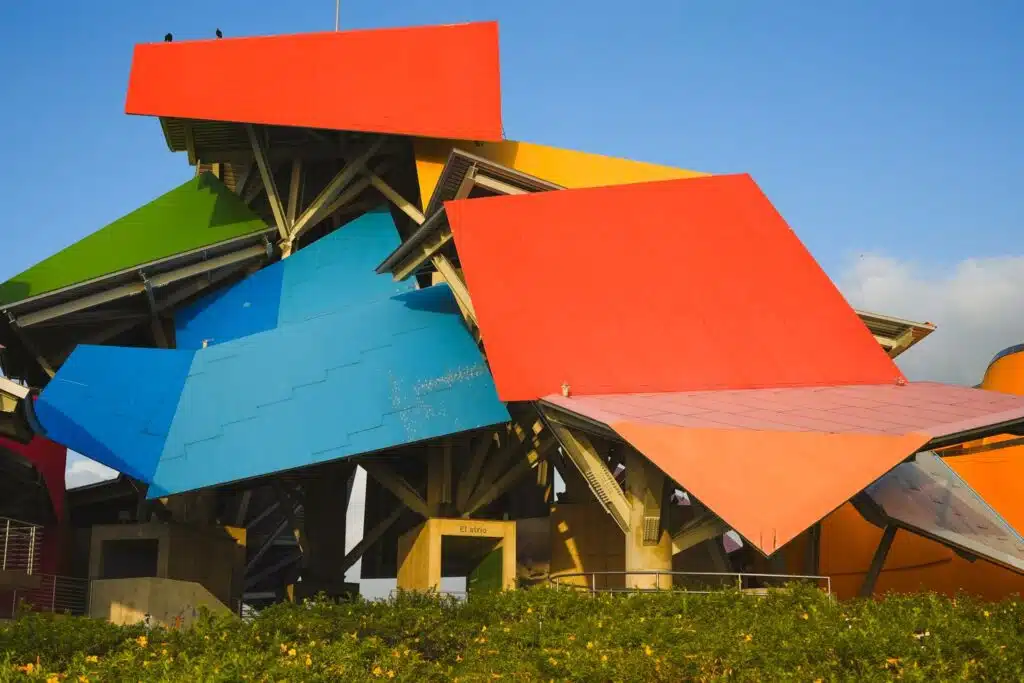
Biomuseo is the work of world-famous architect Frank Gehry, supposedly at the request of his Panamanian wife. The colorful facade, representing Panama’s biodiversity, spreads out on Amador Causeway at the entrance to the Panama Canal.
It’s unmissable, even from the plane.
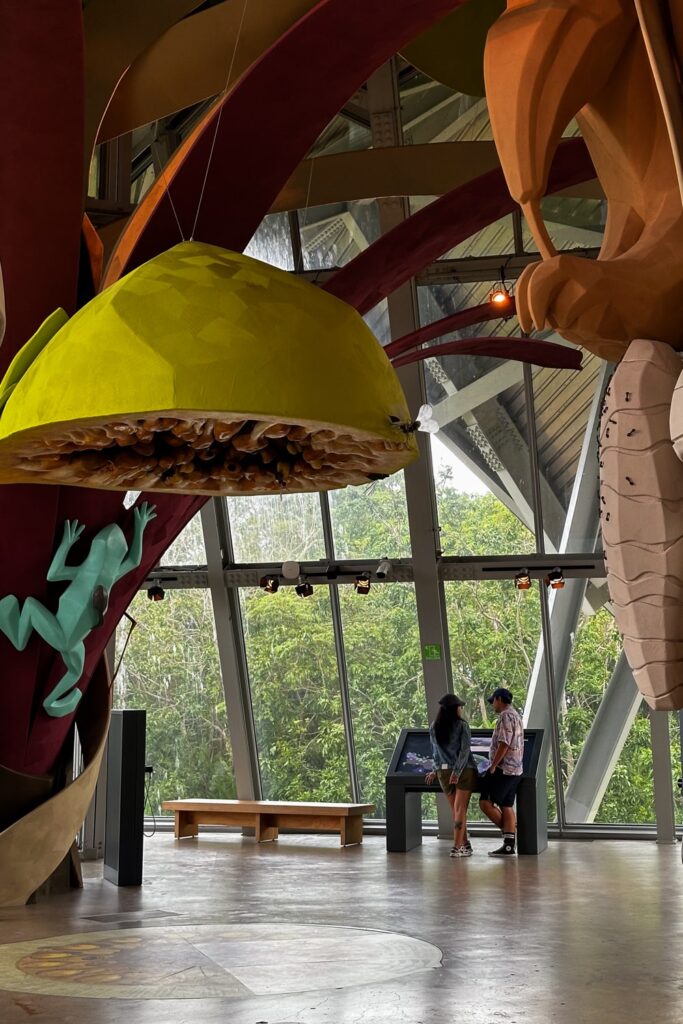
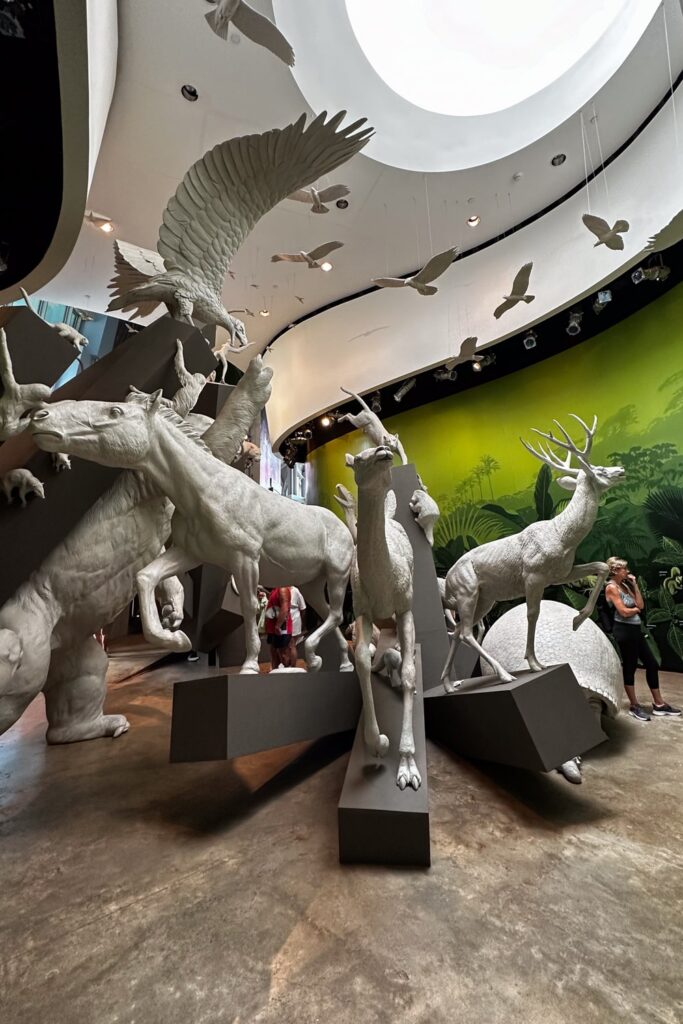
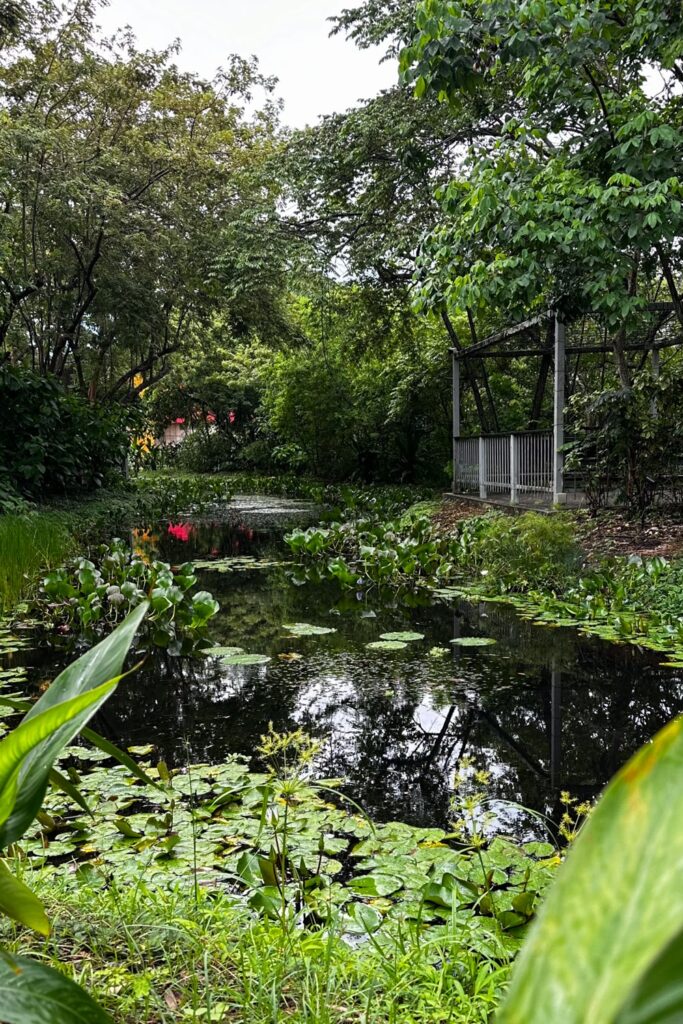
The building has two main exhibition wings connected by a large outdoor atrium. The upper level offers ocean views on both sides—just like Panama itself—while the ground level houses panels that recount the country’s history in chronological order. All information is available in both English and Spanish.
A visit can take up to two hours, but there’s a café on site. It’s also the perfect thing to do in Panama City when it rains, which is how I ended up there instead of my original plan to walk down Amador Causeway. Totally worth it!
Bike Down Amador Causeway and Eat Raspao’
The Amador Causeway is a 6-kilometer (3.7-mile), rock-lined strip connecting four small islands to the mainland. With ships passing on one side and the city skyline on the other, it offers one-of-a-kind viewpoints and a refreshing ocean breeze.
In the mornings, the causeway doubles as a training ground for marathoners and triathletes, but all kinds of outdoor fun are welcome. Just before the Museum of Biodiversity, you’ll find a bike rental shop Bicicletas Moses offering scooters, rollerblades, and even quadracycles.
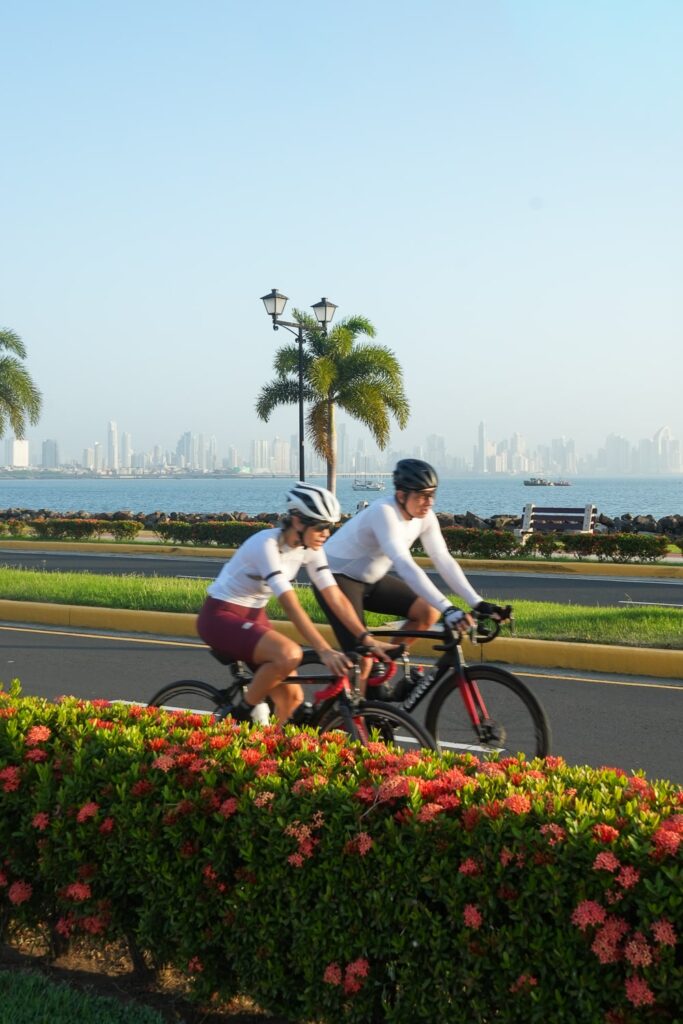
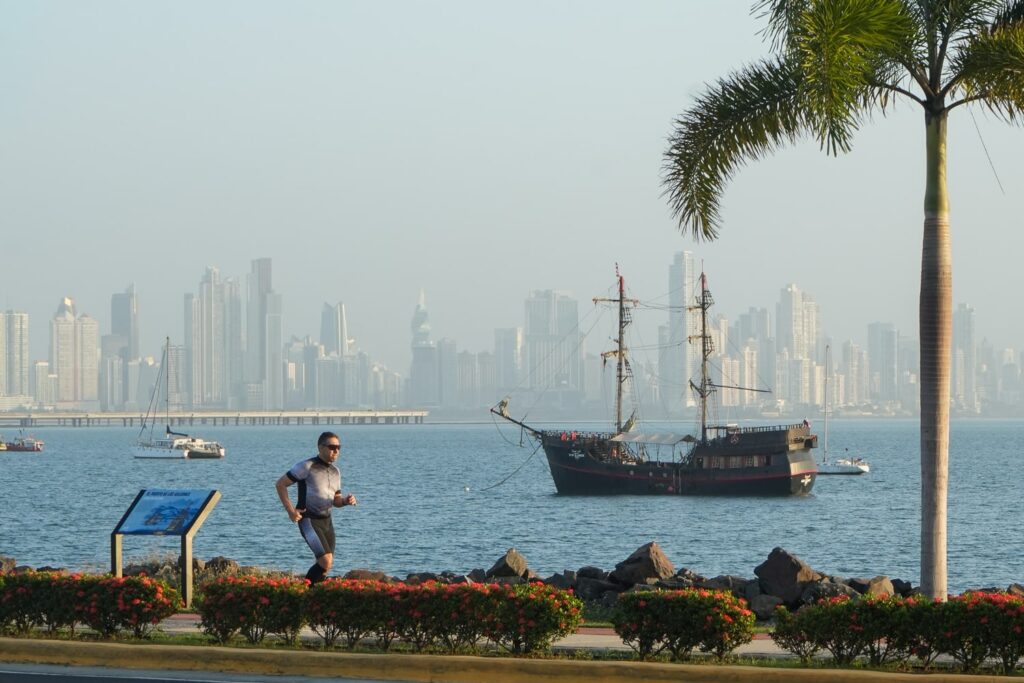
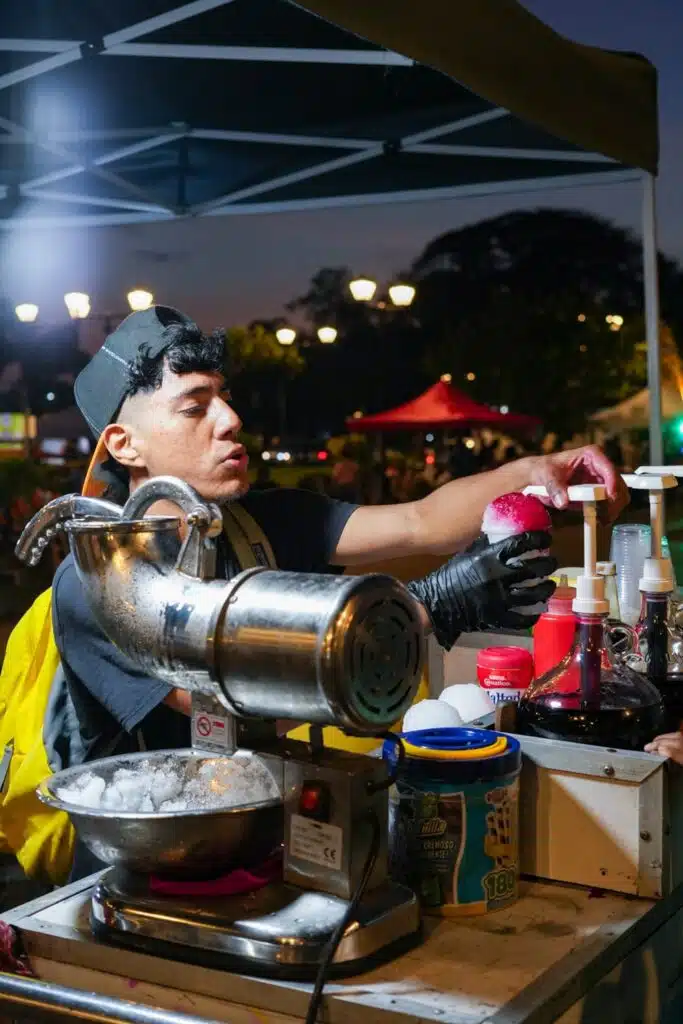
Thanks to its prime location, Amador Causeway is one of the best places to watch the sunset in Panama City. As the sun dips, street food pushcarts roll out and the small amusement park at the end of the causeway comes alive. Cool off with a raspa’o (shaved ice cup) while you take in the view.
Take an Architectural Walking Tour
Just a short walk from Casco Viejo lies Santa Ana. A historic neighborhood with eclectic architecture and the sole pedestrian-only street in Panama City, Avenida Central.
Connecting two major plazas, Cinco de Mayo and Santa Ana, Avenida Central is lined with buildings that trace Panama’s history. You’ll see everything from Moorish-inspired colonial constructions to Art Deco gems.
With so much detail hidden in plain sight, I recommend exploring this neighborhood with a guide. I visited on this walking tour with Daniel, an architecture aficionado, thanks to whom Santa Ana became one of my favorite areas in Panama City. This tour is for you if you’re looking for non-touristy things to do in Panama City.
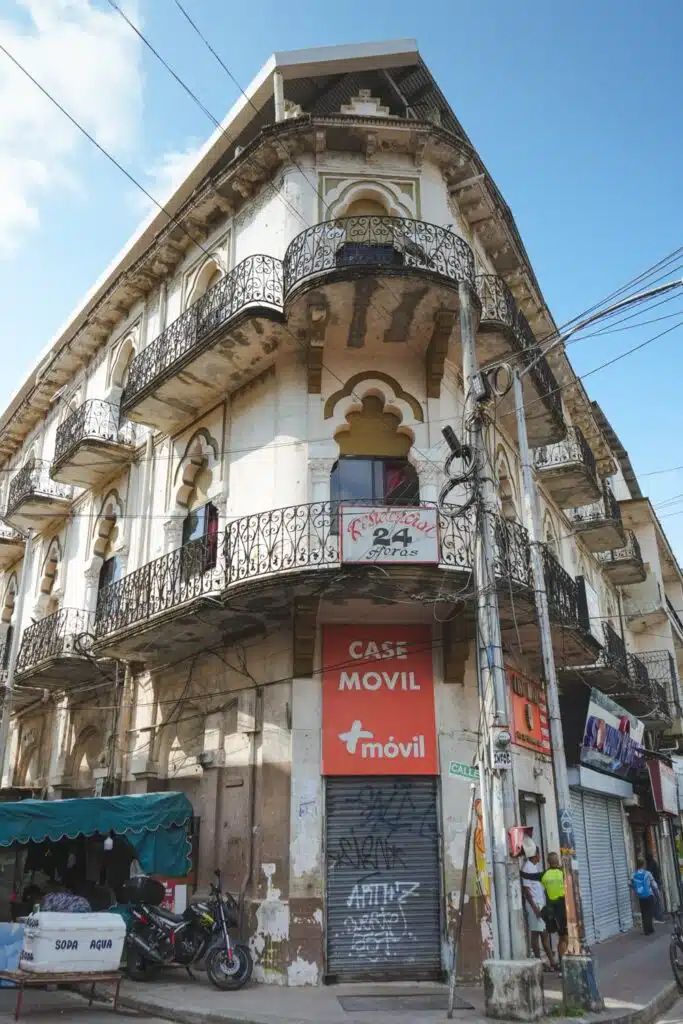
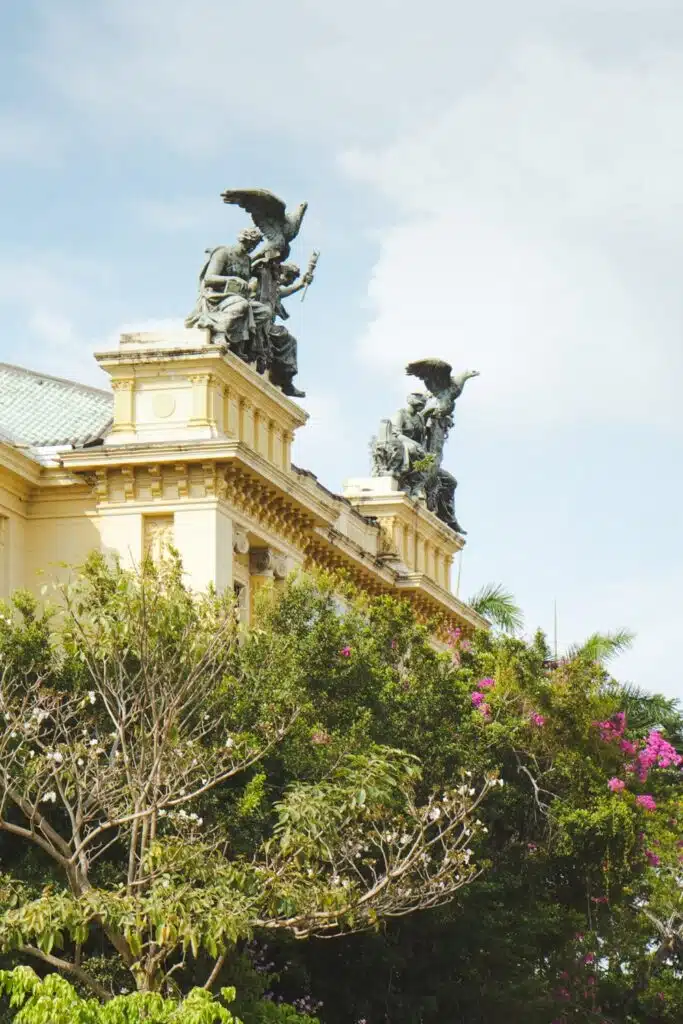
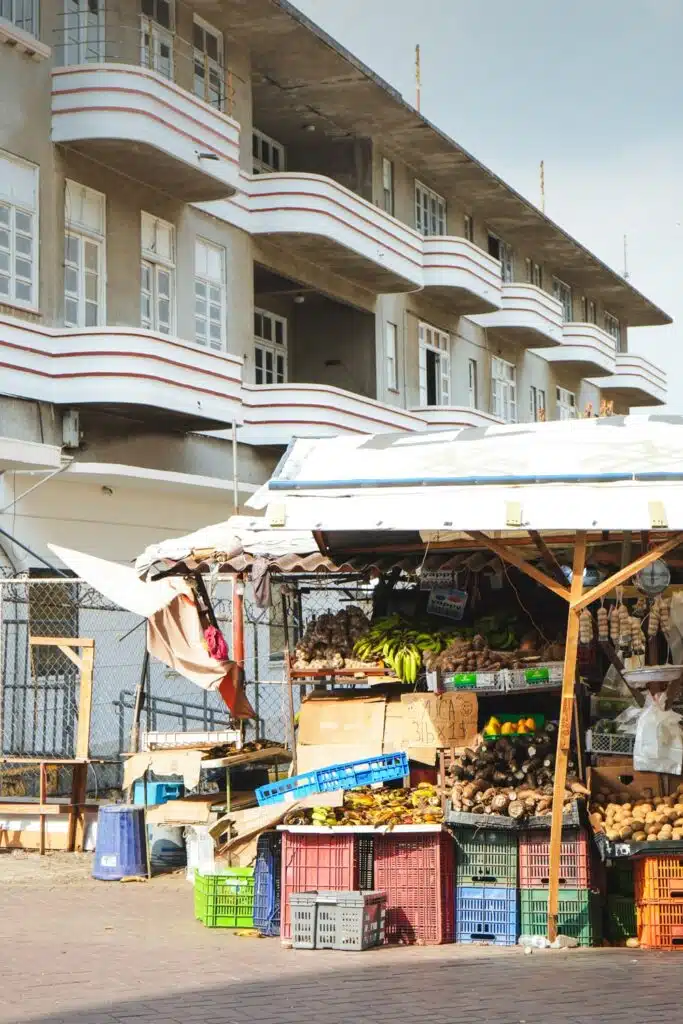
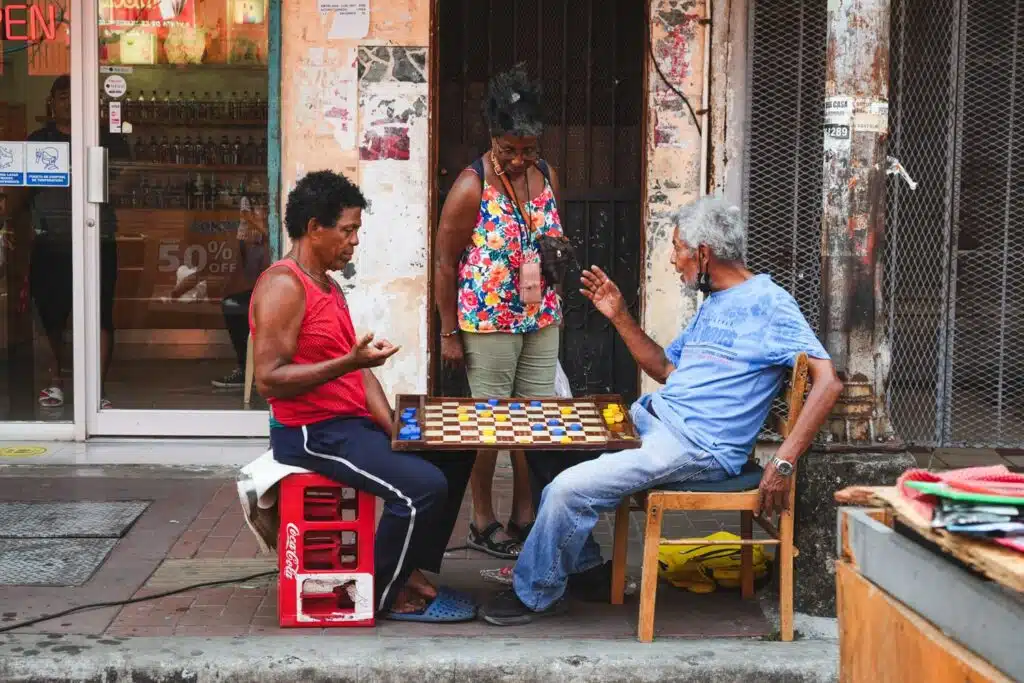
Read Your Fortune in Old Chinatown
This might be an unusual recommendation for things to do in Panama City, but hear me out.
The first Chinese arrived in Panama in the 1850s to work on the transisthmian railroad and settled in a barrio in Santa Ana, just outside Casco Viejo. Today, it’s estimated that around 6% of Panama’s population is of Chinese origin, and about 35% can trace Chinese roots in their family tree. Chinese culture is a visible part of everyday life in Panama, and not getting to know this layer would be remiss.
The original Old Chinatown is mostly dilapidated now, but still home to the Sociedad Religiosa y de Beneficencia Yang Wo, a temple dedicated to Kuan Kung, the deity of war, wealth, and protection. The entrance sits beside a dim sum shop and up a narrow staircase. It’s an active place of worship and the site of Chinese festivities.
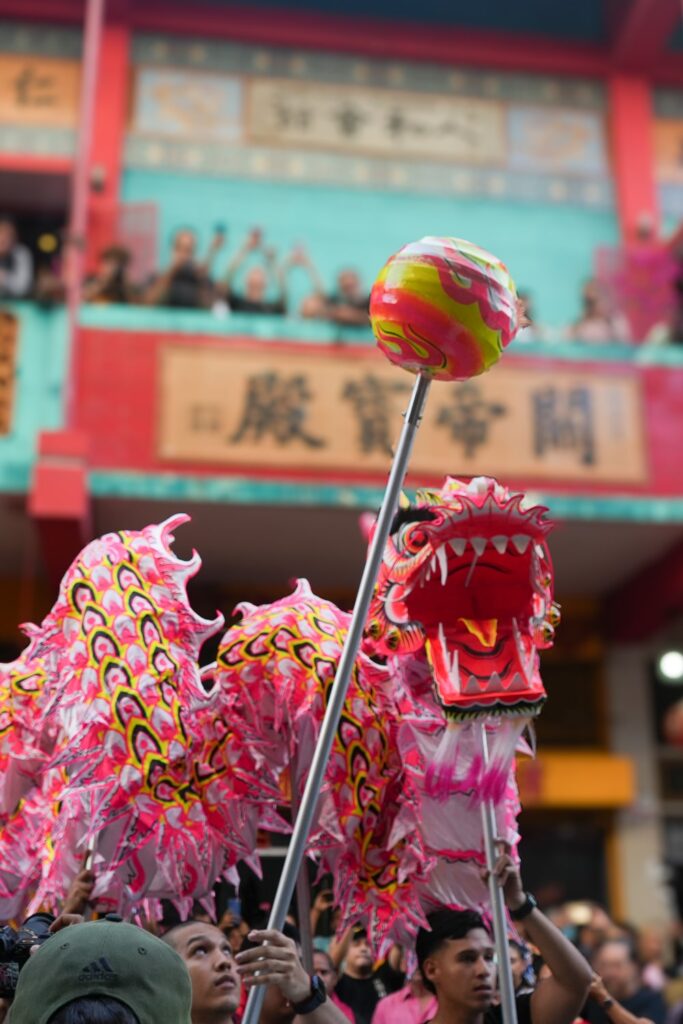
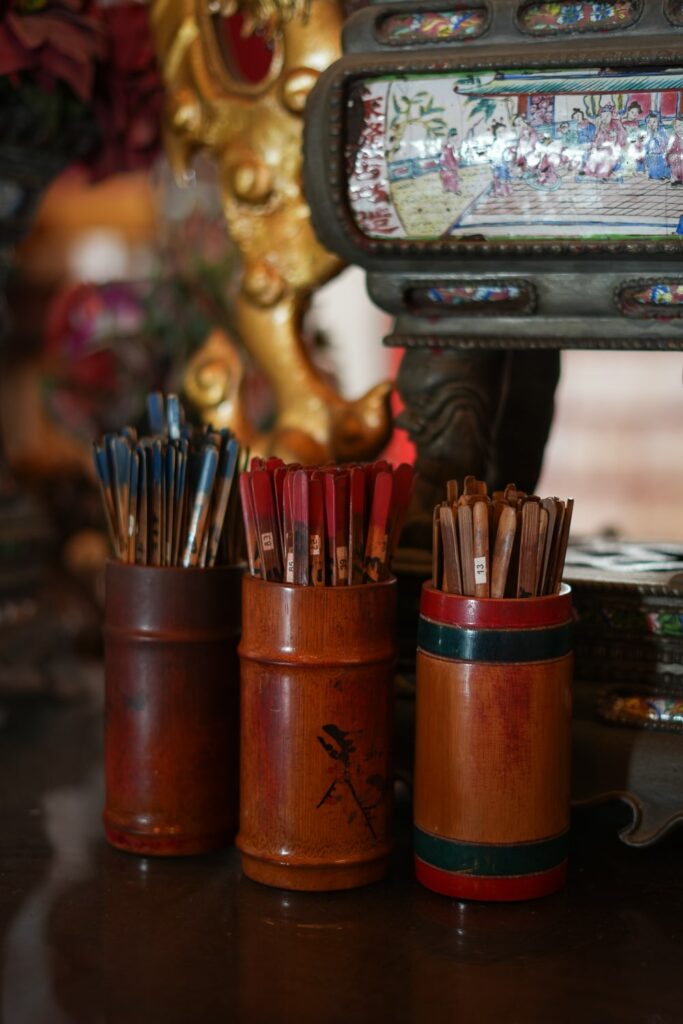
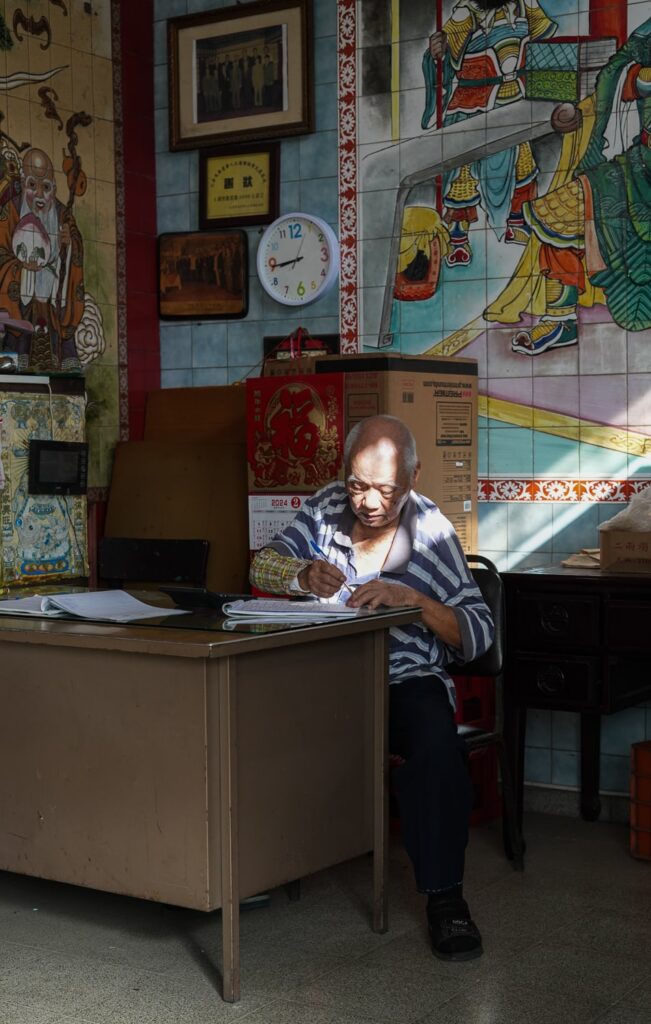
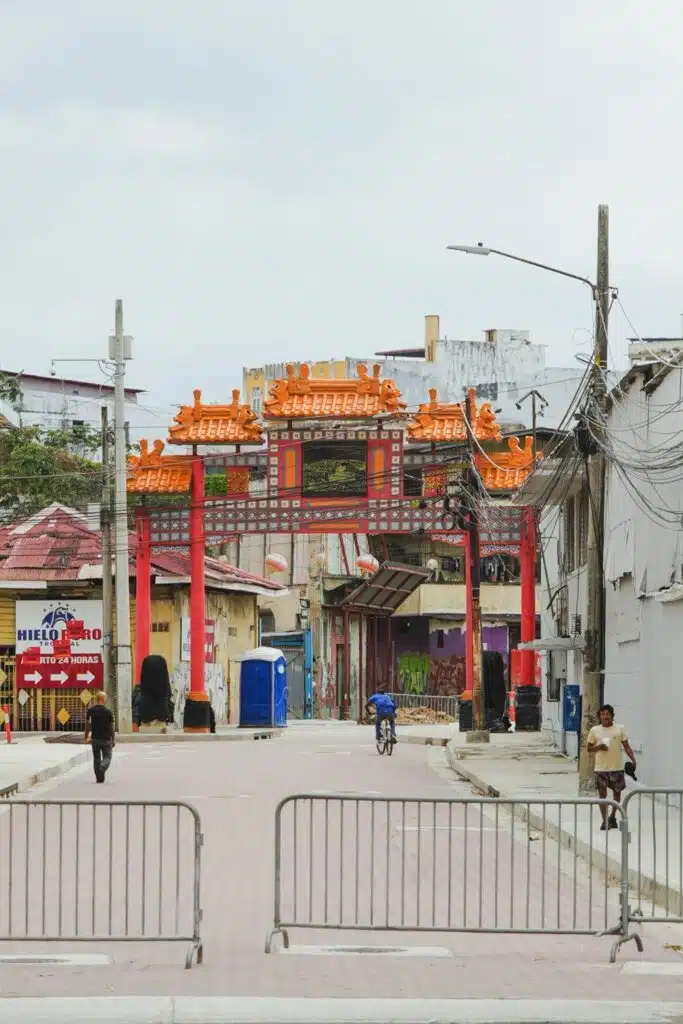
Inside, dragons guard the altar, and the air is thick with incense. On the marble table, you’ll find Kau Cim, or Chinese fortune sticks. To have your fortune told, kneel, think of a question, shake the cylinder until one stick falls out, and match its number to a poem on the back of the divider.
It’s become a ritual of mine while traveling. I now have a small collection of fortunes from around the world. Entry is free, and donations are voluntary.
See an Art Exhibit at Fundacion Casa Santa Ana
Tucked away in a building with no signage, Casa Santa Ana is a true hidden gem in Panama City. It’s located right next to Casco Viejo in one of my favorite neighborhoods in Panama City. This gallery is a non-profit foundation that aims to connect people through contemporary art and make it accessible. It runs residencies for established and emerging local and international artists. Here, you can always find a fresh perspective on Panama, since residents are often inspired by the country.
Expect your visit to take around 45 minutes. I recommend checking out Santa Ana’s website for what’s on and how to get there. Since there is always a special exhibition taking place, it’s one of the places in Panama City that you’ll want to revisit, making it a perfect pick for things to do in Panama City if you’ve been before.
Visit the Museum of the Panama Canal
You are going to add the Miraflores Docks to your Panama City itinerary, but if you preface it with a visit to the Museum of the Panama Canal, you might get more out of your visit.
The Panama Canal Museum, overlooking Plaza de la Independencia in the heart of Casco Viejo, has a long history. In 1874, it was constructed as a hotel. Then, it became the headquarters of companies building the Panama Canal – first the French and then the Americans, before eventually being returned to Panamá. Finally, in 1997, the newly renovated building opened its doors as the Panama Canal Museum.
The bilingual exhibit spans two floors and traces the canal’s history, starting from the arrival of the Spanish in the 16th century to the canal’s handover back to Panama in the late 20th century, offering political and social context. Expect your visit to take around one and a half hours.
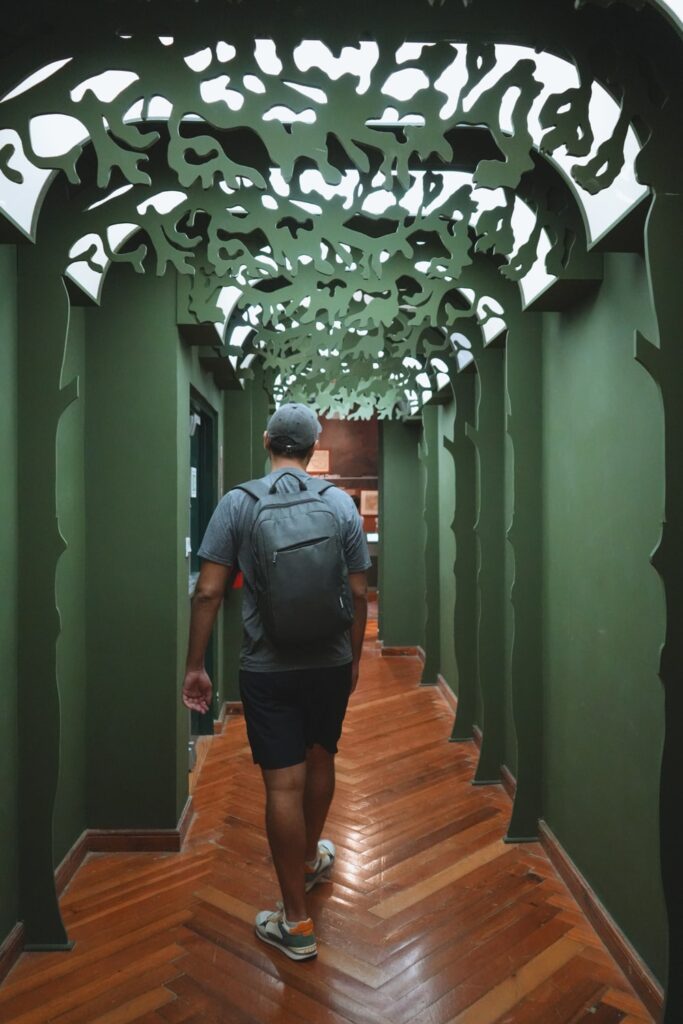
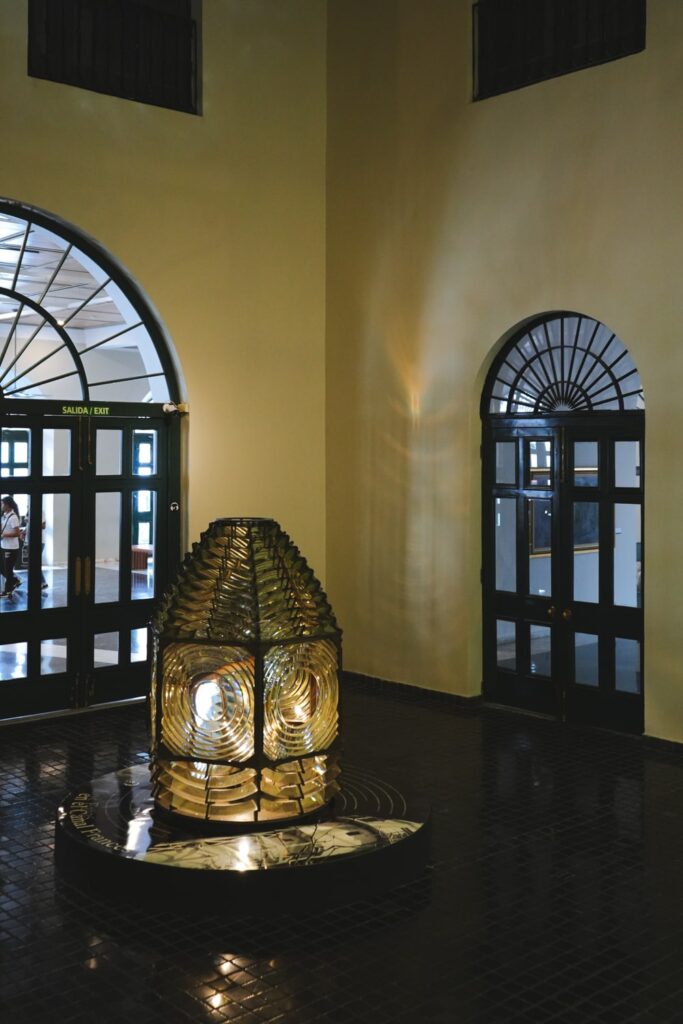
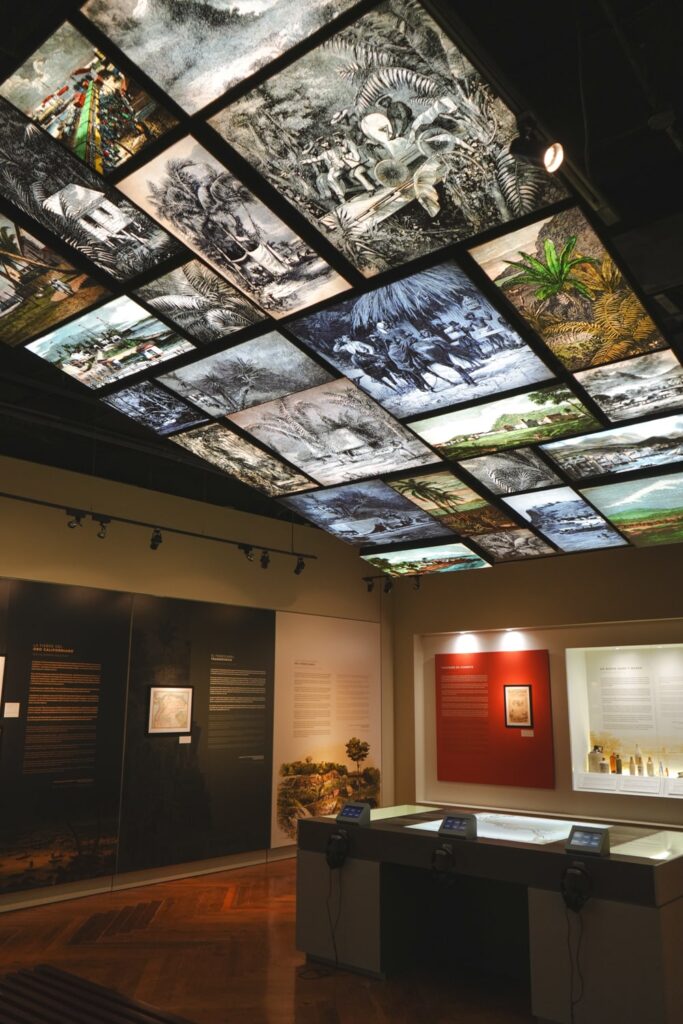
Learn about the Art of Mola
Just a few blocks from the Panama Canal Museum, you’ll find the Mola Museum (Museo de la Mola). It’s a little world dedicated to the intricate textile art of the Guna Yala women, one of Panama’s seven indigenous groups, who maintain their traditions, from crafts to daily dress. The exhibit explores the history and significance of mola patterns, which are handmade by layering, cutting, and sewing fabrics.
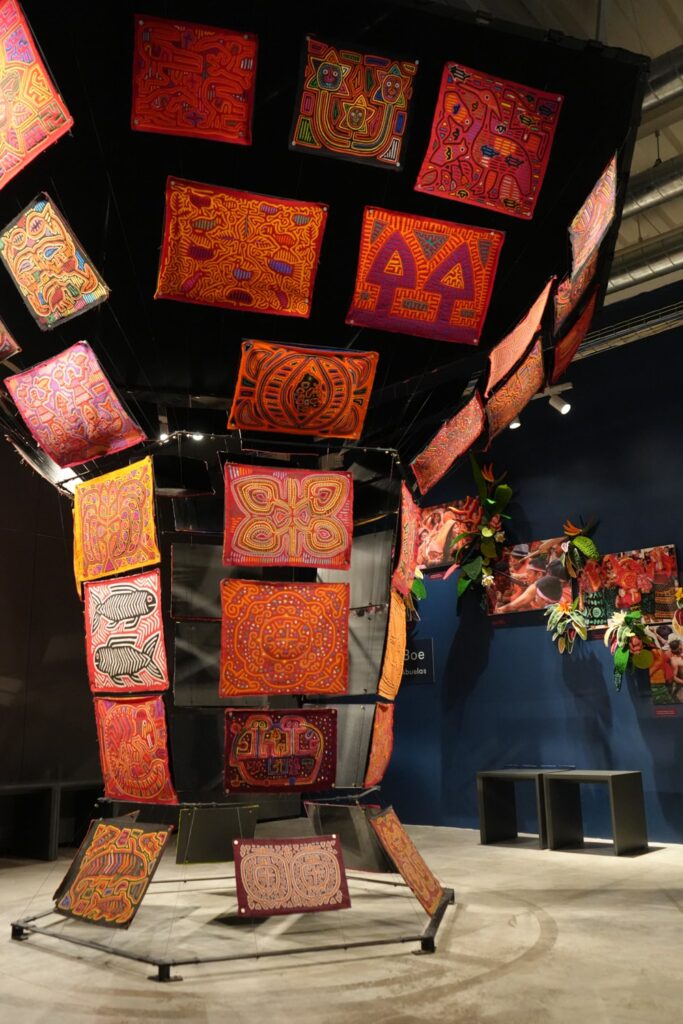
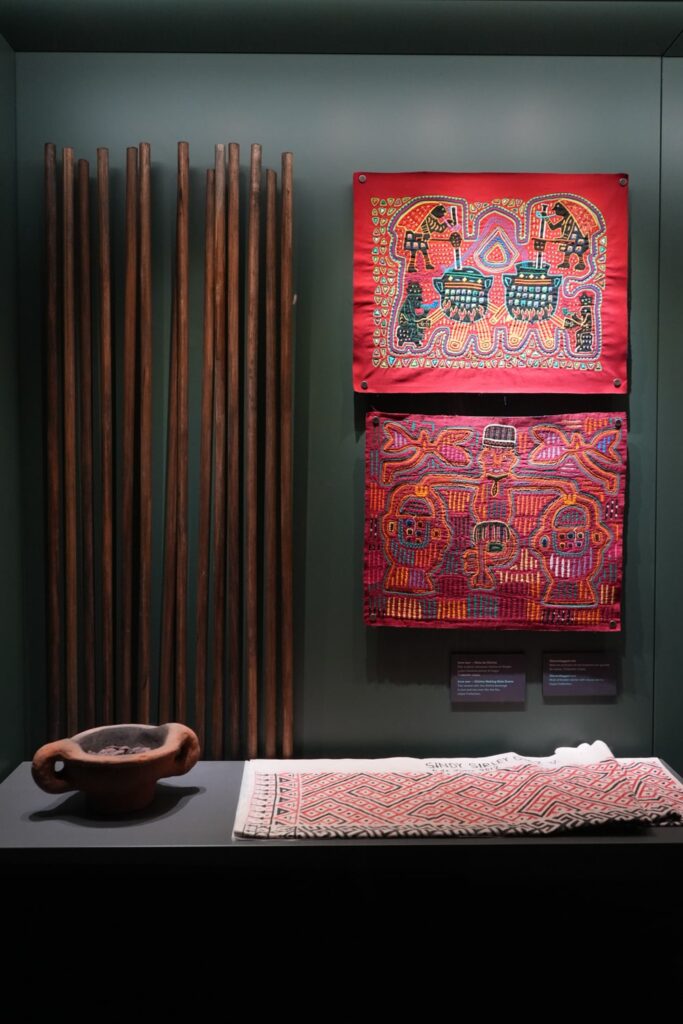
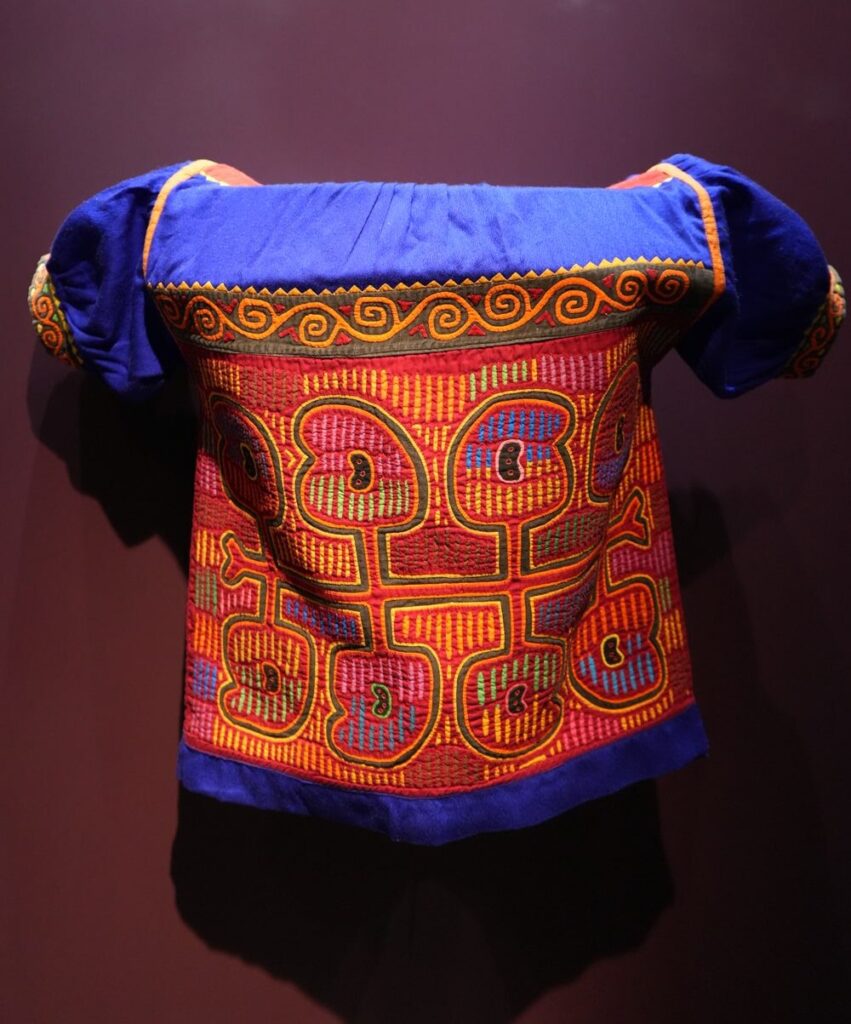
It’s an immersive exhibit, with videos and a make-your-own mola mosaic. Easily the best free thing to do in Panama City, which exceeds expectations.
You may need to wait since entry is capped for limited space, and visits usually last about 45 minutes.
Buy Souvenirs from Panama
Casco Viejo, the hub of Panama City sightseeing, is also the top spot for gifts, but many shops sell the same touristy items, so it pays to be selective.
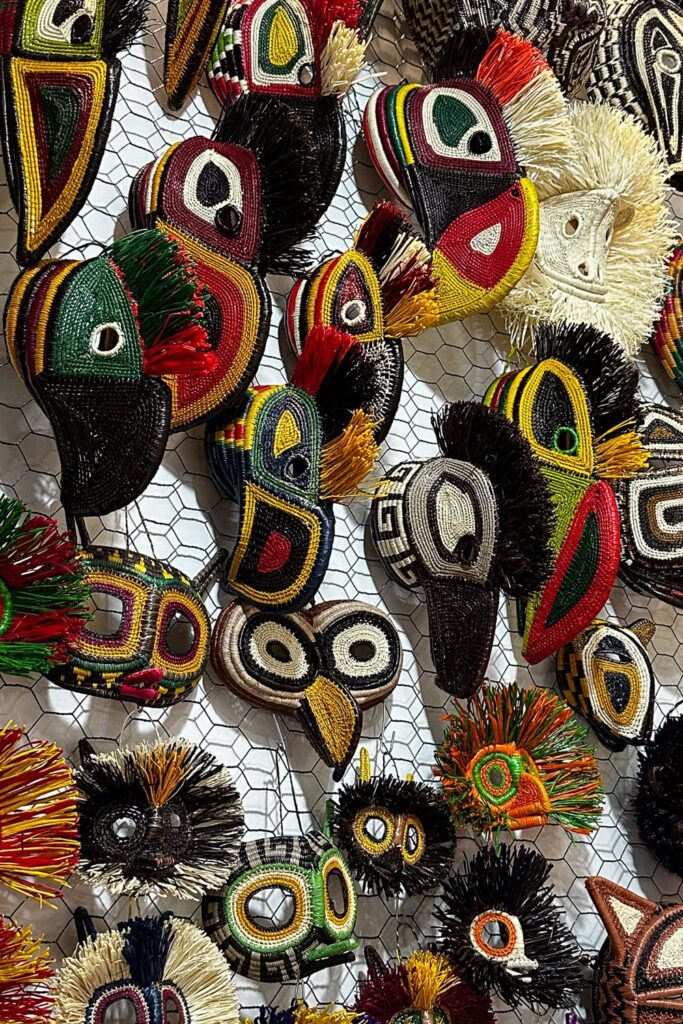
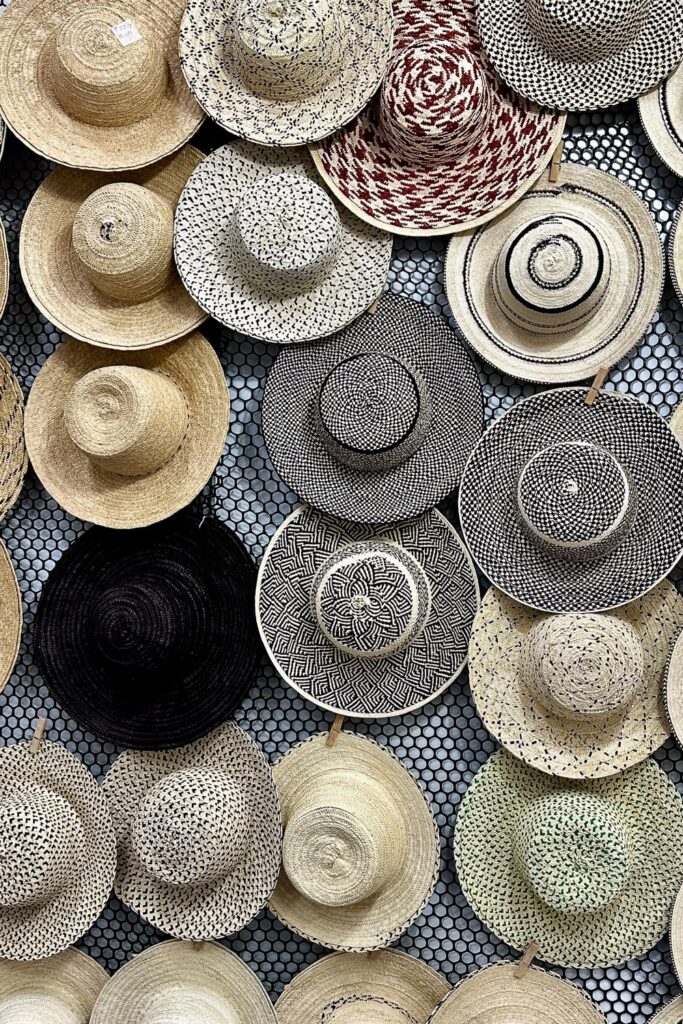
Here are the best souvenirs and where to find them:
- Coffee: Panamanian beans or ground coffee are a no-brainer. Pick them up at specialty cafes in Panama City or at Rey and Deli Gourmet Supermarkets (DeLino and Lamastus are favorites).
- Chocolate: Visit Oro Moreno to create a beautiful box of Panamanian chocolate flavors.
- Rum: Grab artisanal bottles after a tasting at Pedro Mandinga Bar or at Rey Supermarkets. Rum-based Geisha coffee liqueur makes a unique gift.
- Handmade Crafts: Look for Guna Yala molas, Embera masks and baskets, or a sombrero pintao’ from Coclé Province (the real Panama hat). Casco Viejo shops abound, and Guna Yala artisans set up stands behind the French Embassy and Paseo de las Bóvedas in the area.
- High-quality gifts: Hyatt La Compañía in Casco carries mola-style cushions; Reprosa in Multiplaza offers masks, gold orchid jewelry, and wooden décor.
- Fun, local merch: Rako Store in Casco Viejo sells pins, posters, hats, and shirts featuring humorous illustrations of Panamanian culture. The kind that sparks an IYKYK grin overseas.
Browse Local Produce and Eat at a Fonda
Before you have your fancy fonda experience at Lo Que Hay, visit a real local fonda to better understand the inspiration behind the concept and see how the locals do it.
Firstly, what’s a fonda? A fonda is a counter-serve roadside eatery offering pre-cooked, hearty Panamanian dishes for anyone seeking a quick, homestyle meal. It’s the original Panamanian fast food joint.
While the menu depends on what’s available that day — “whatever there is” — you’ll find favorites like hojaldres, stewed proteins (guisado), rice and beans, and fried yuca or plantain.
Visit the San Felipe Neri Public Market near Casco Viejo, browse the produce, then head to the back hall filled with fondas. Grab a little bit of everything!
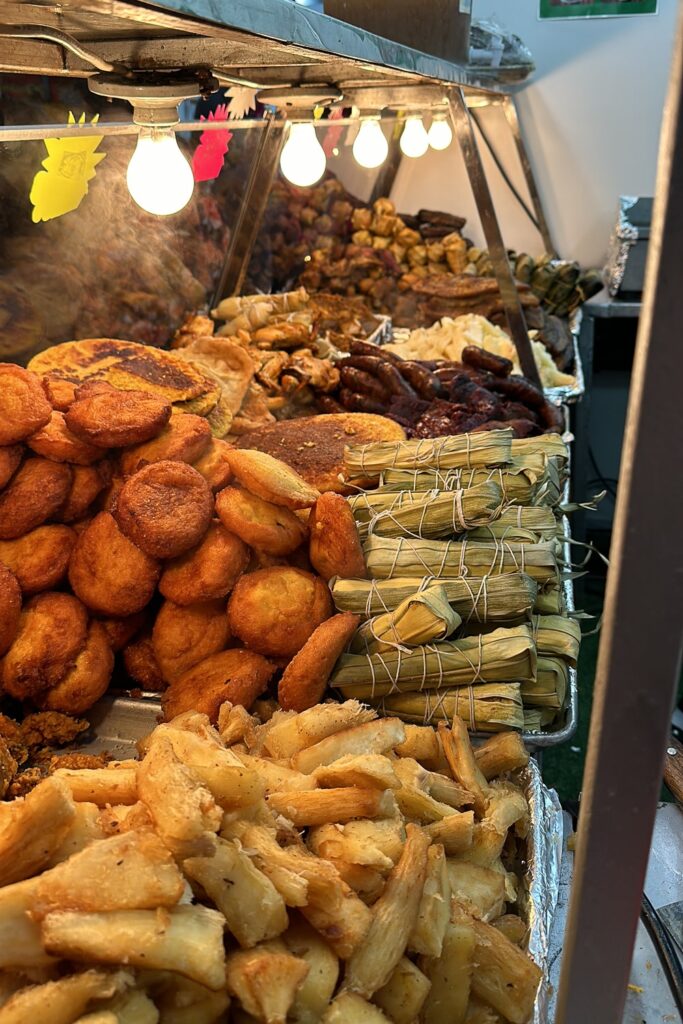
Join the Sunday Cyclovia on Cinta Costera
Cinta Costera (Coastal Belt) is a 7km (4.3 mi) promenade that stretches along the coast. There are free courts, jungle gyms, playgrounds, lookouts, and open-air pavilions that host everything from dance classes to martial arts. It’s a popular place to stroll, run, cycle, play tennis, and admire the iconic Panama City skyline.
If you’re in Panama City on a Sunday, take advantage of the cyclovía, when part of Cinta Costera is closed to traffic from 6 a.m. to noon, turning the highway into a car-free zone. You can rent a bicycle in Casco Viejo or at Rali on Avenida Balboa and enjoy an uninterrupted ride.
Eat Ceviche at the Fish Market
One of the best things to do in Panama City is to break up your Cinta Costera adventure with a pitstop at Mercado de Mariscos, located on Avenida Balboa.
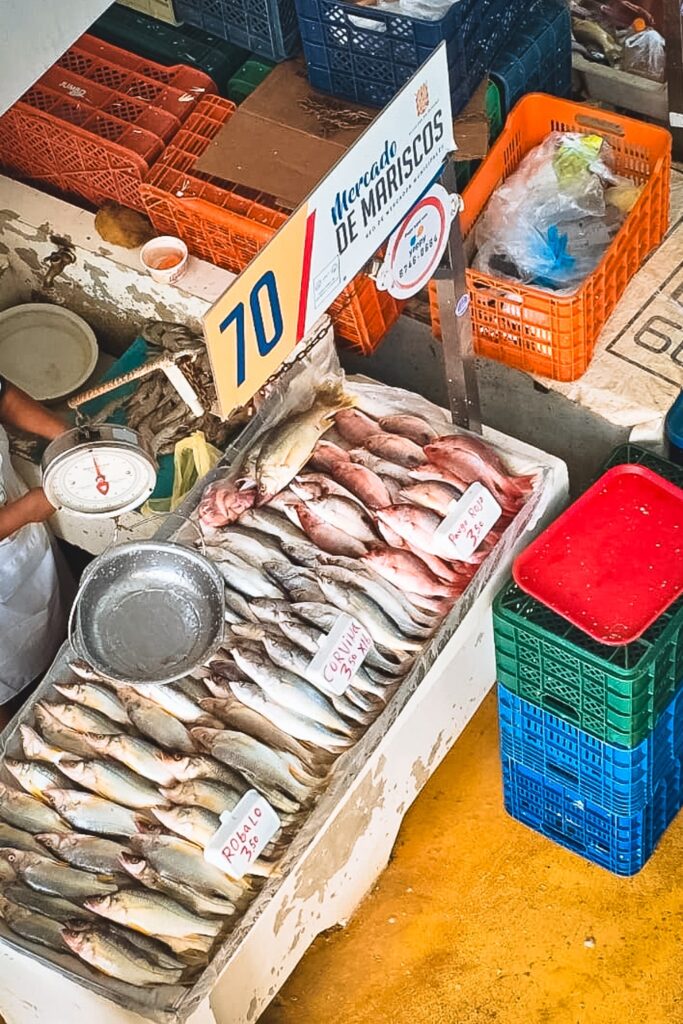
The food hall is right in front of the fisherman’s docks and adjacent to the fish market. Touters will usher you in. Surrender, pull up a chair, preferably next to a big fan, and order a grilled fish with a side of patacones and a cupful of ceviche.
The Panamanian method of preparation of ceviche involves extended marination, which makes it very sour. Scoop it with salty plantain chips to balance out the flavor.
Join a Sunday Dim Sum Brunch
Thanks to the Chinese community in Panama, the steamed dumpling siu mai has become a staple in the local diet. Without fail, every mini-mart will have a steamer full of dumplings ready to go. But weekend dim sum brunches across the city are unbeatable, the best of which is Palacio Lung Fung.
Expect a large banquet hall filled with round tables, lazy susans, and push carts circling the room with stacks of steamed and fried dumplings. Among the Cantonese classics, don’t miss the Chinese take on Panamanian carimañolas (pork-stuffed yuca fritters).
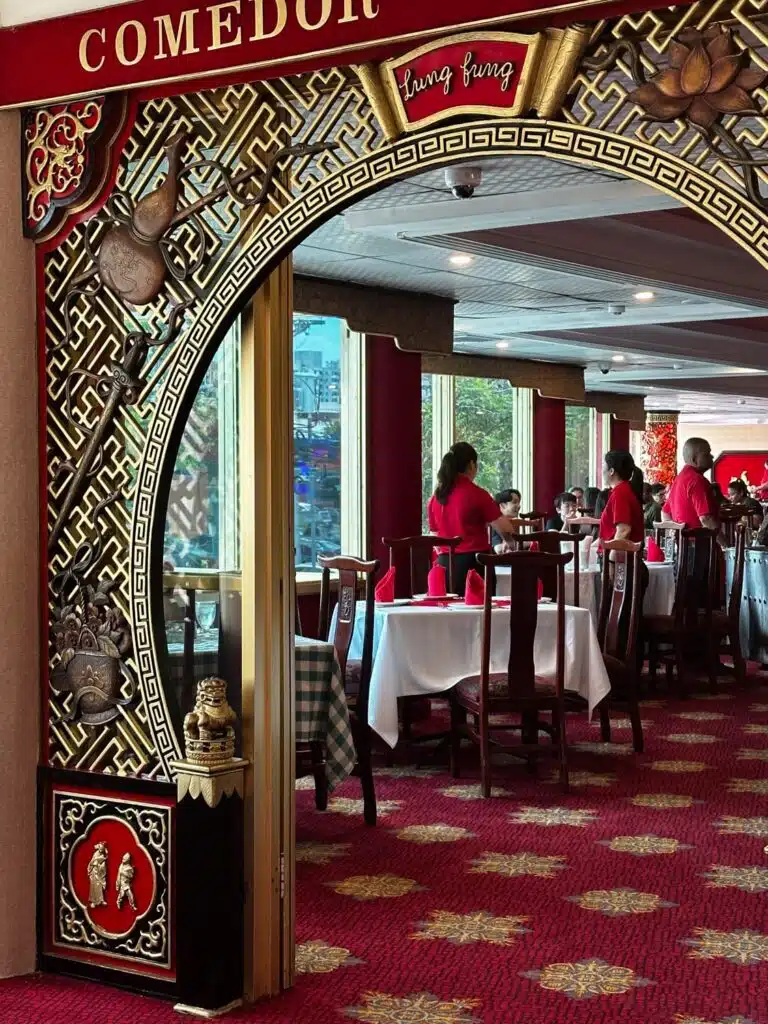
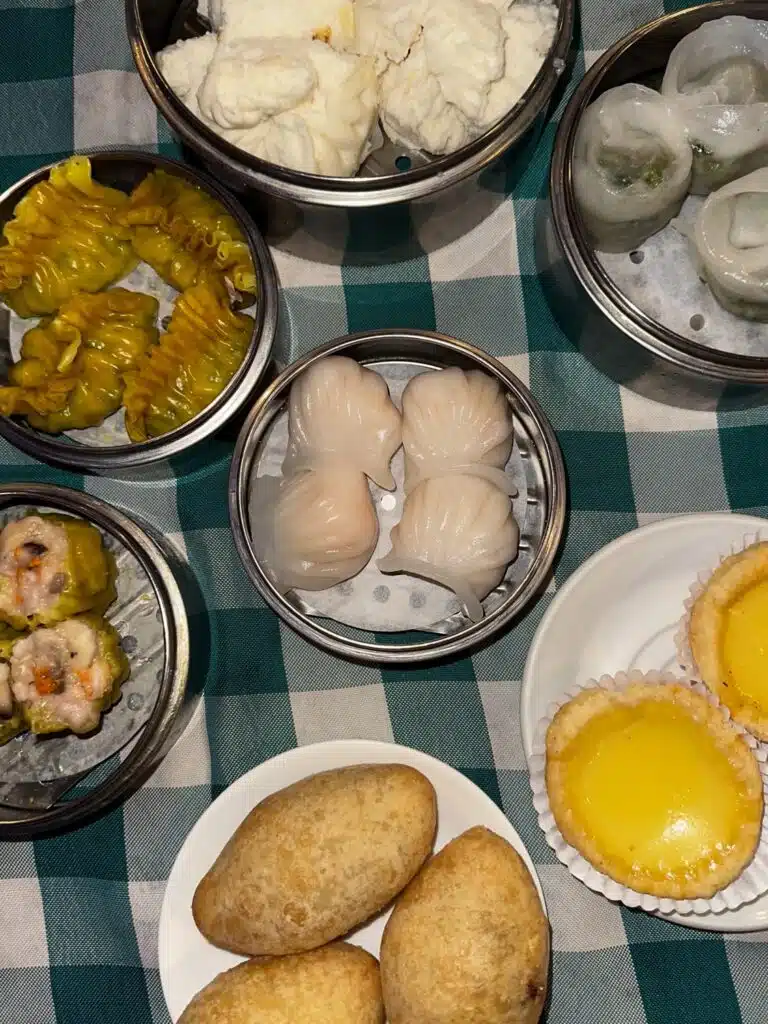
Go Sloth Spotting on Cerro Ancon
Panama is home to numerous national parks, with two located right within the city limits. One offers a proper hike—more on that later—and the other, Cerro Ancon, is more of an uphill walk.
Cerro Ancón is topped with a giant Panama flag, the symbol of independence, visible from many parts of the city. The climb takes 30 minutes along a paved path, rewarded with views of Cinta Costera, Casco Viejo, skyscrapers, and the Bridge of the Americas.
Wildlife often makes an appearance on Cerro Ancón, especially during the dry season (December to April). My first visit was uneventful, but on my second, I saw toucans and not one, but two sloths up close! Your best chance of spotting wildlife is in the morning, between 8 and 10 a.m., and the entry is free.
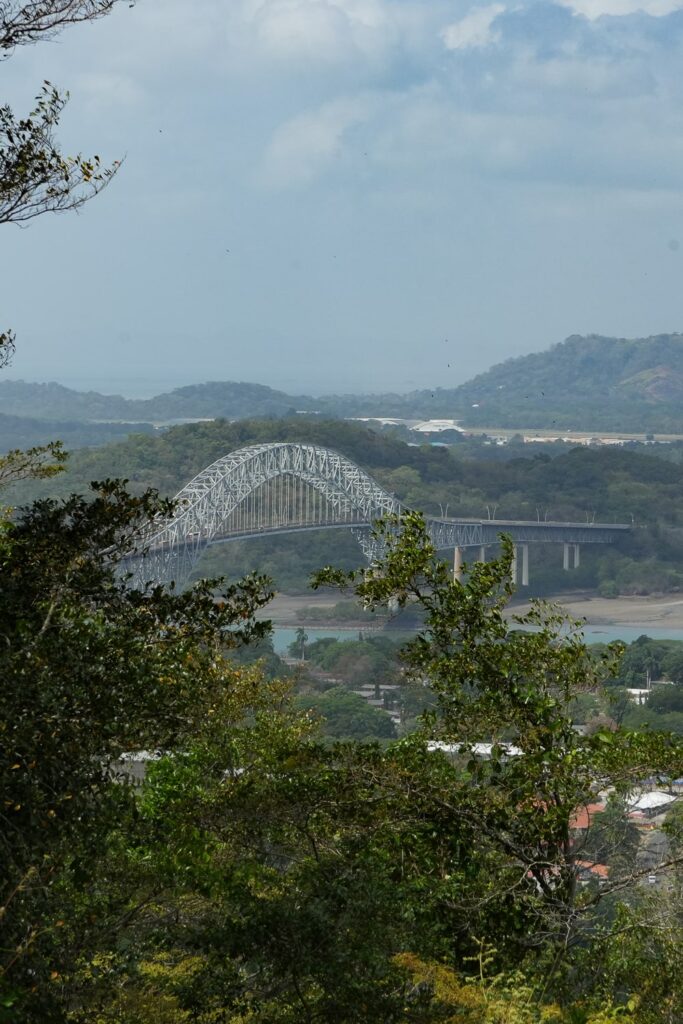
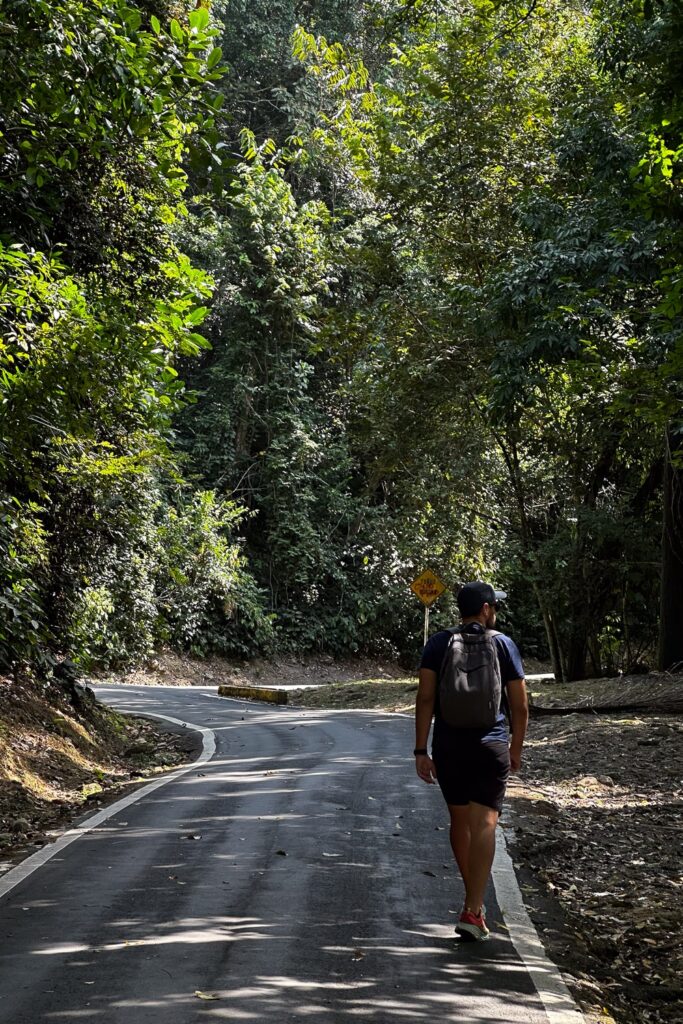
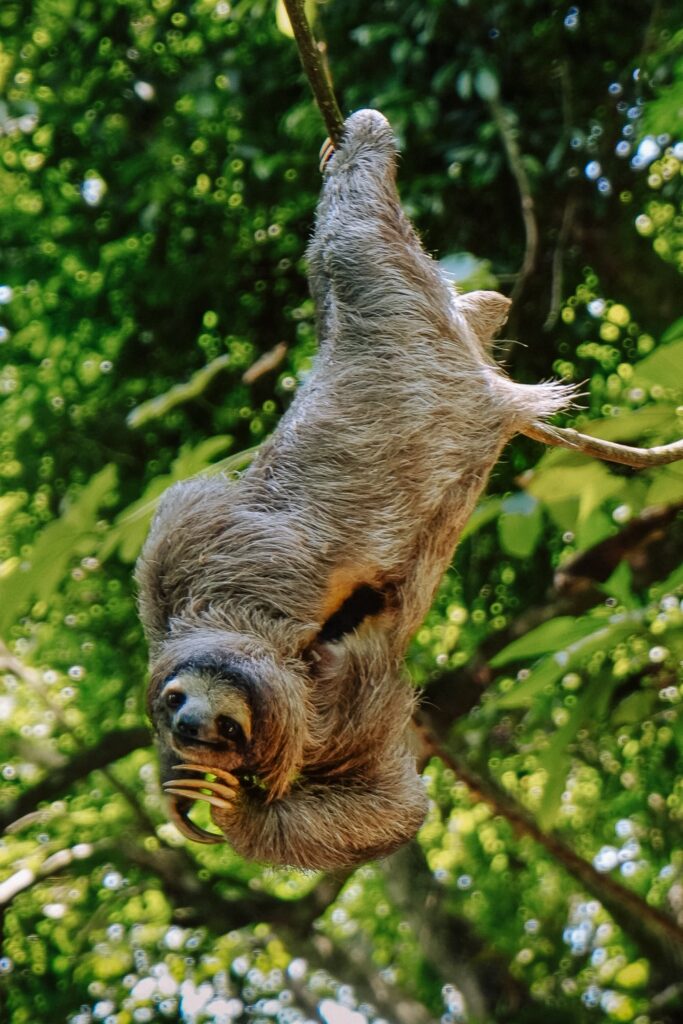
Hike to the Viewpoint at Metropolitan Park
Spanning 265 hectares, Metropolitan Park is the largest park in Panama City. A giant green lung within city limits that’s not to be missed.
Entry costs $5 and gives you access to a variety of trails, with the highlight being the 4.8-kilometer (3-mile) loop. It winds along gravel paths, dirt trails, and leads to Mirador Cerro Cedro, where tree canopies frame downtown Panama City.
Along the way, you’ll see turtle ponds, busy worker ants, monkeys, and sloths, plus a variety of beautiful plant species.
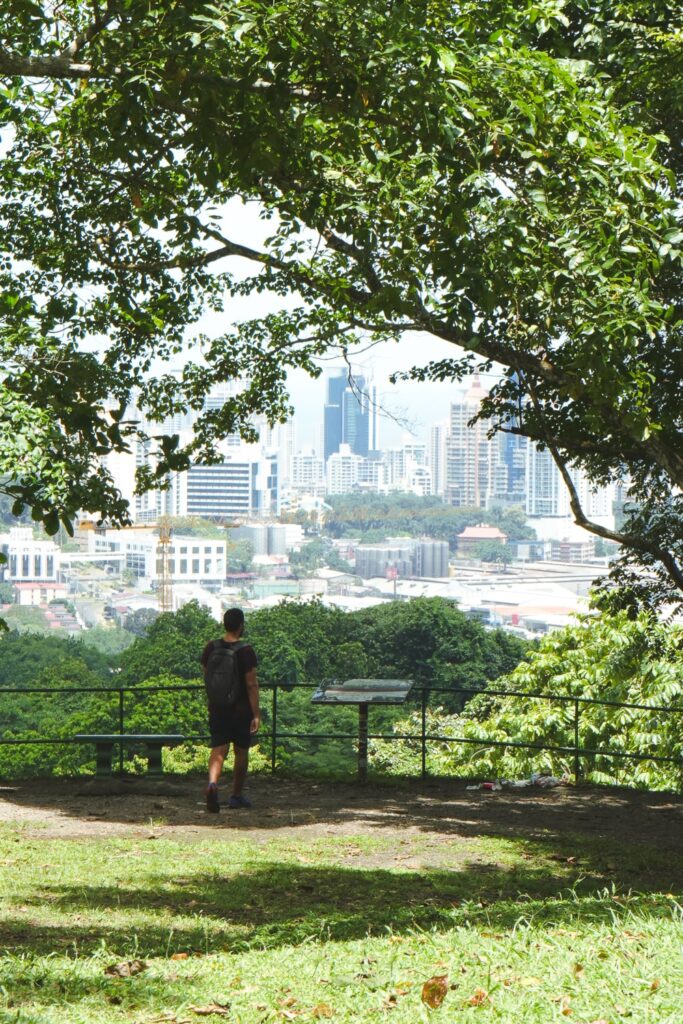
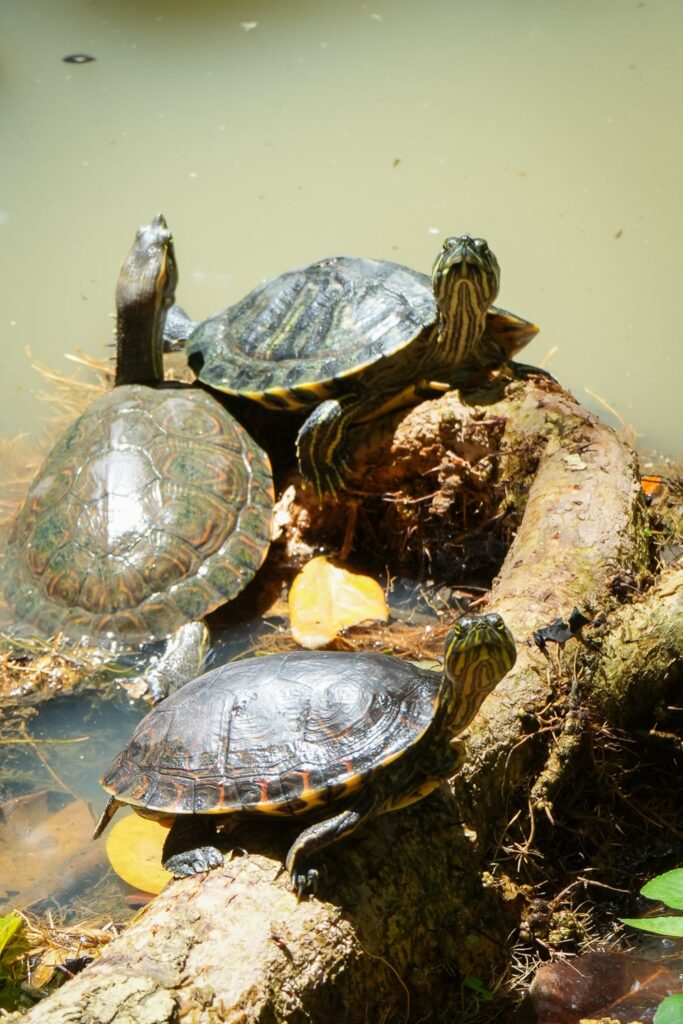
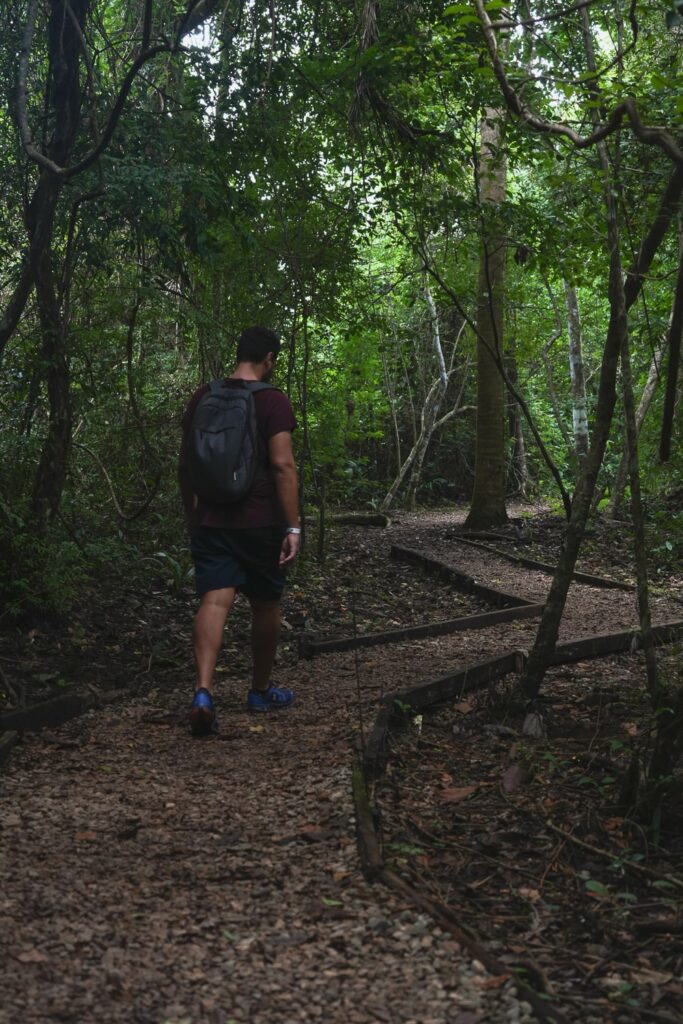
Get a Massage at Panama Casa Thai
After all that walking and hiking, your body might be due for some TLC. There’s no place that will take care of you better than Panama Casa Thai Massage. Located right above Fonda Lo Que Hay, this authentic Thai-owned and operated day spa is a hidden oasis.
So much thought has gone into every detail. From the design that teleports you to Thailand to the background music that instantly drowns out Casco’s street noise. From the selection of aromatherapy oils and post-massage snacks to the overall, unparalleled Thai hospitality. I left truly rejuvenated, but missing Thailand all the more.
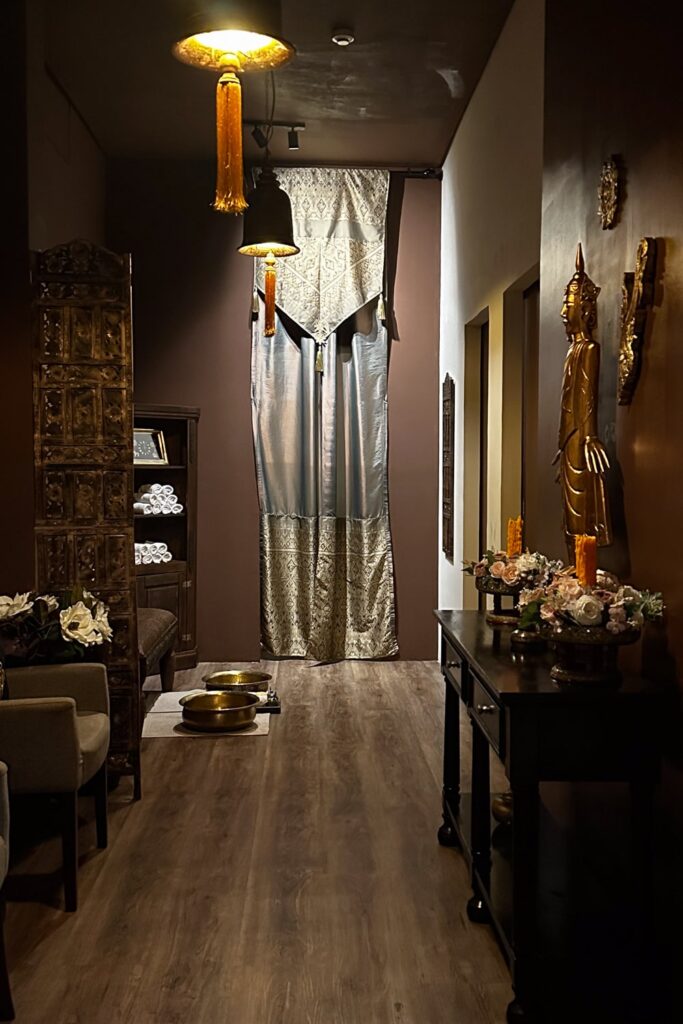
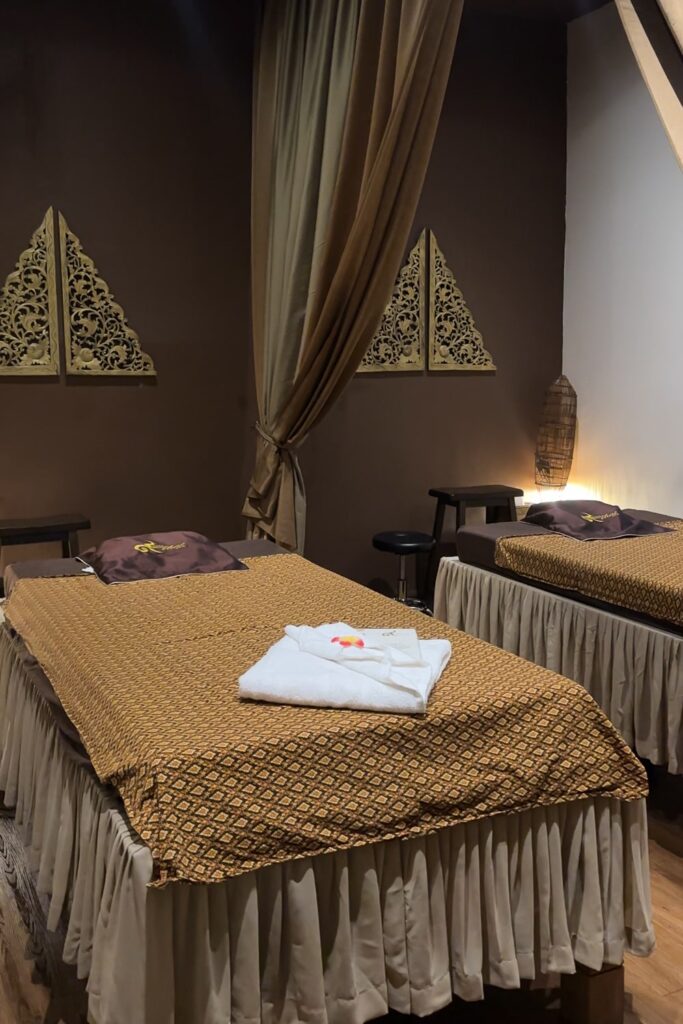
Try Geisha Coffee
If you haven’t heard, Geisha coffee, which comes from Panama, is the world’s most expensive coffee(currently worth $13,705.70 per pound). It’s not the only spectacular varietal that Panama’s terroir produces. Some other notables include Typica, Catuai, and Caturra – but tasting Geisha coffee is a mandatory thing to do while in Panama.
I recommend starting with this introductory coffee tasting, which includes Geisha and five other varieties, to prepare you for visiting the best coffee shops in Panama City.
Panamanian coffee is synonymous with prestige, and no place embodies that better than Sisu Coffee Studio — an extension of Lamastus Family Estates, award-winning coffee-producing fincas (farms). This is where I tried Geisha for the first time, at $14 a serving, and it was a full-on experience, from meticulous preparation to presentation.
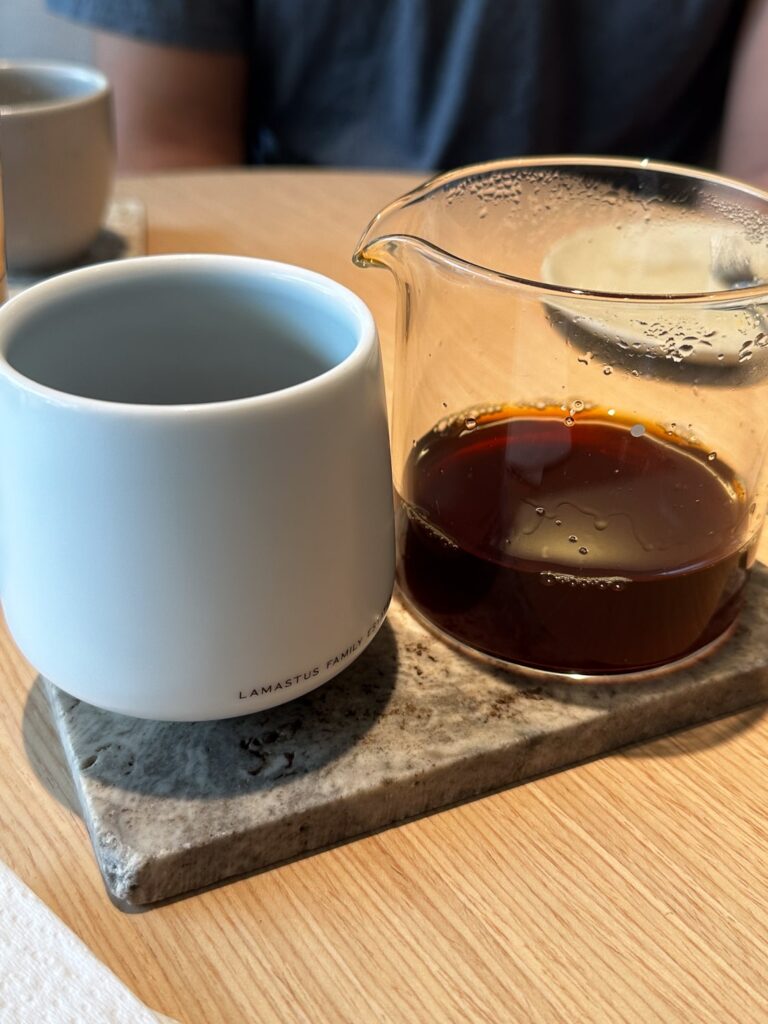
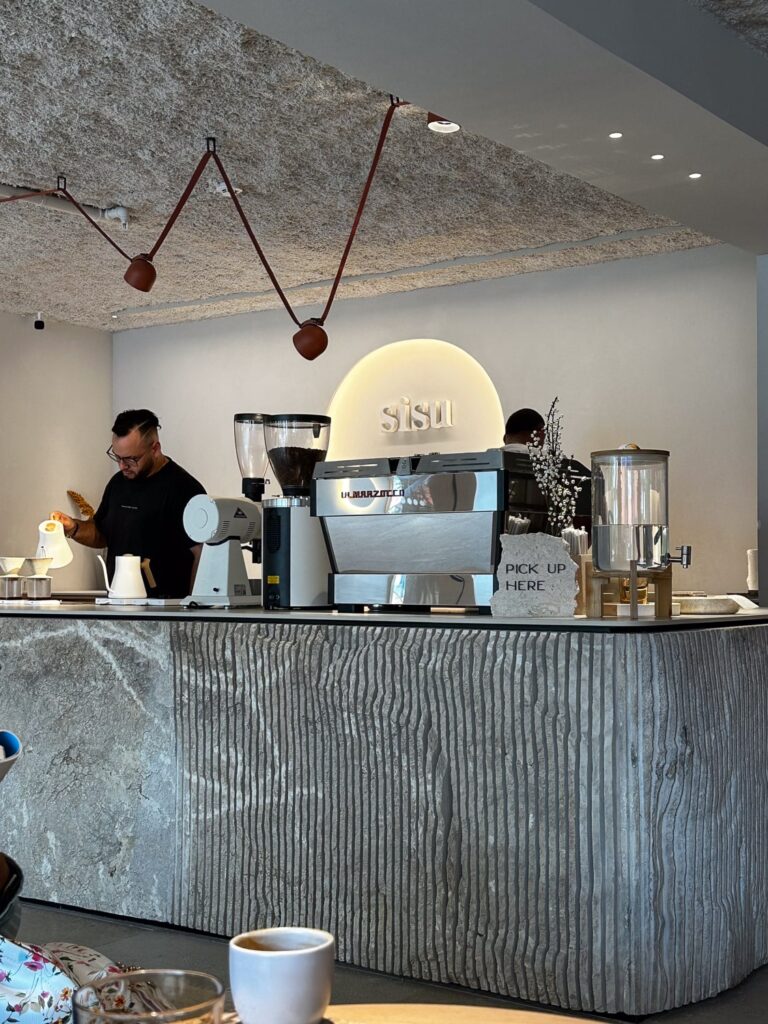
Explore the Old Panama City
Panama Viejo is the oldest European settlement on the Pacific coast of the Americas, founded in 1519. In 1671, it suffered a devastating pirate attack led by Captain Henry Morgan and was left abandoned, replaced by Casco Viejo. Today, this site is a UNESCO-protected archaeological park called Panama Viejo.
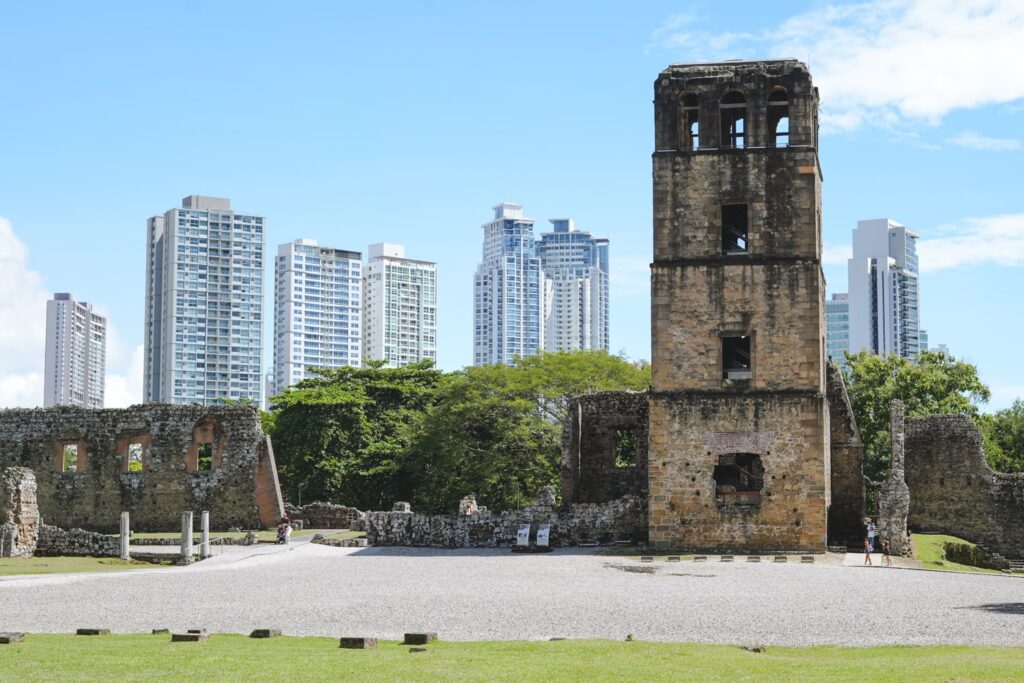
The site spans 29.5 hectares, so golf carts whisk you to and from the entrance. If it’s not too hot, it’s worth taking a walk through the lush grove of trees that passes through the ruins of churches, convents, and houses. The indoor museum highlights the site’s history, but the main event is, of course, visiting the tower. You can scale to the top for views of the ocean, the old city ruins, and the modern skyscrapers beyond.
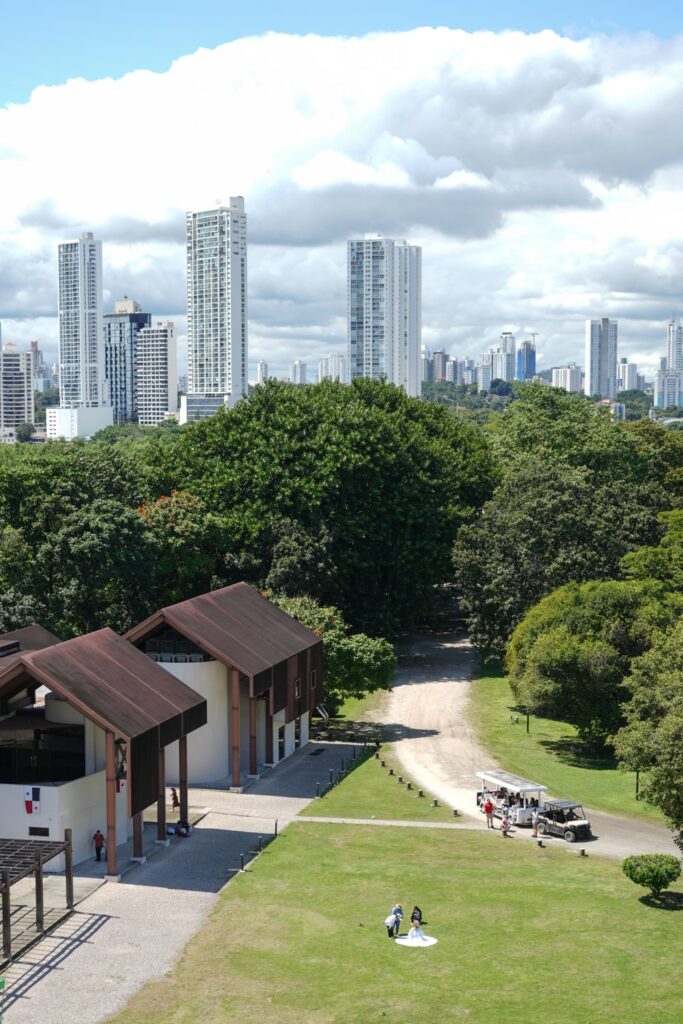
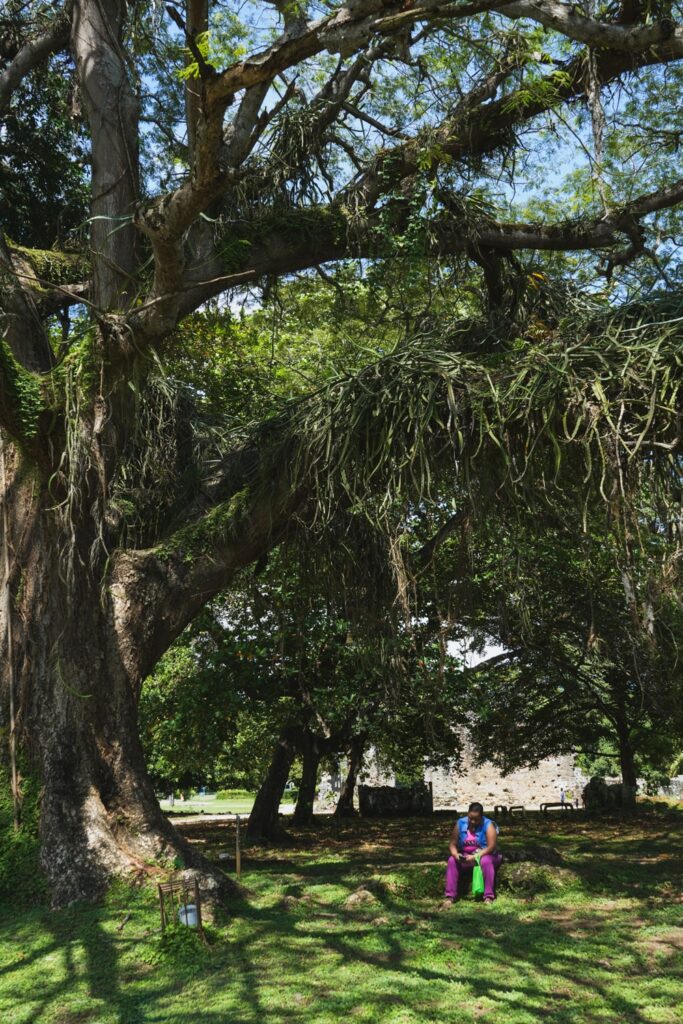
During the dry season (December to April), Panama flares up with vivid reds, yellows, and pinks of blooming flower trees that create colorful carpets as they shed. Panama Viejo is spectacular at this time of the year. Budget about two to three hours for your visit if you want to explore the grounds thoroughly.
Try Panamanian Chocolate
In addition to coffee, Panama is also known for its chocolate production in Bocas del Toro on the Caribbean coast. While Casco Viejo is dotted with chocolate shops and workshops, I recommend Oro Moreno Auténtico, a boutique near Parque Omar in San Francisco.
Tucked away behind perforated vinyl windows, the shop is a little treasure trove of beautifully crafted chocolates in truly unique flavors. Their mission is to use authentic Panamanian ingredients to create edible pieces of art. You can sample their chocolates, assemble a gift box to take home, or book a chocolate-making workshop.
A quick note: the box we put together for a trip to Miami melted in transit. It should be fine if you’re heading somewhere cooler, but keep the chocolate refrigerated in Panama and carry it in your hand luggage, staying in air conditioning whenever possible.
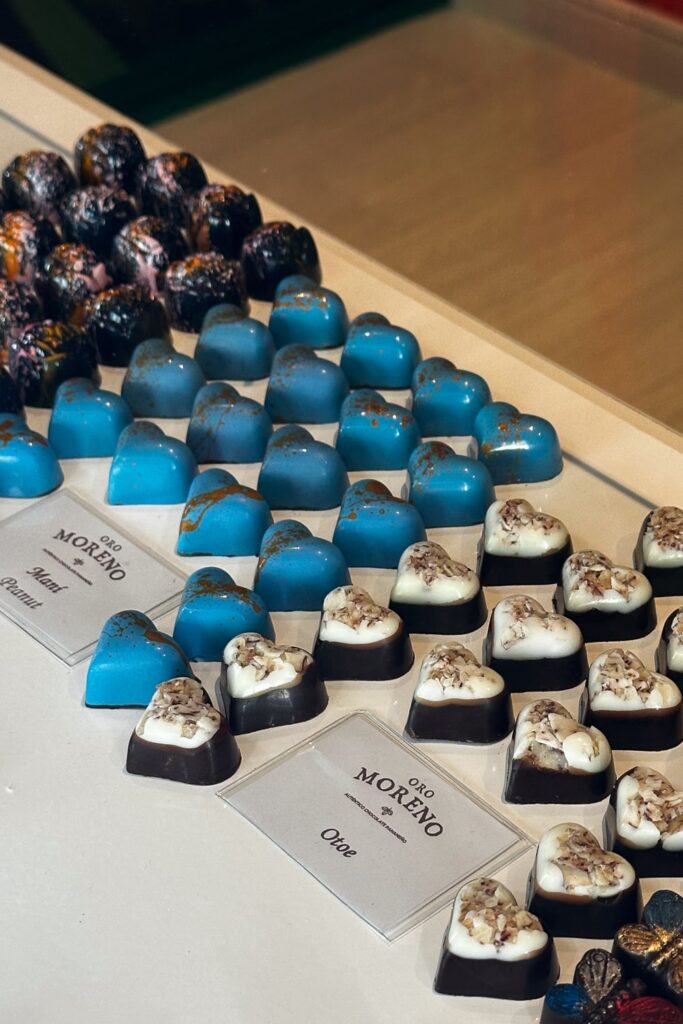
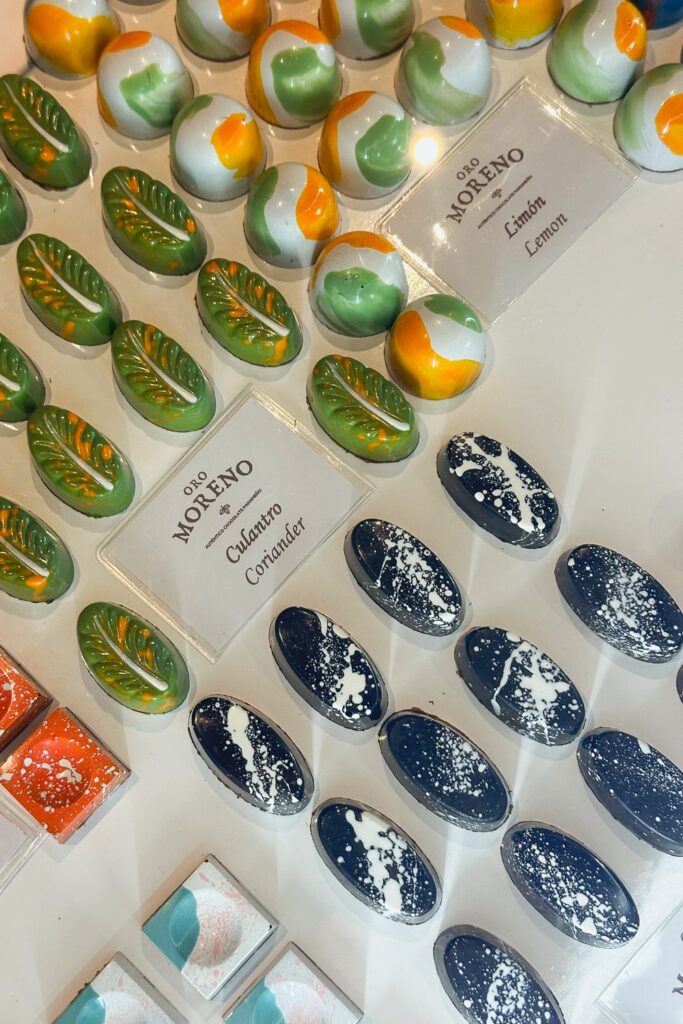
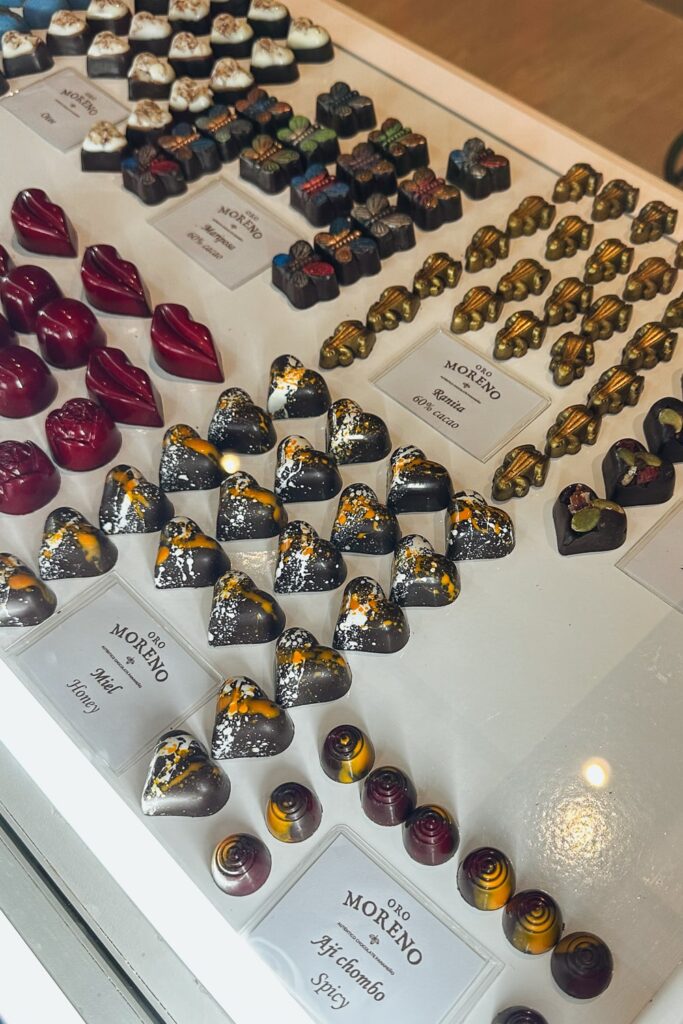
Have a Pipa Fria at Parque Omar
Located on the northern edge of the hipster San Francisco neighborhood, Parque Omar is Panama’s version of Central Park. It’s genuinely one of the best parks in Panama City. Originally a golf course in the 1950s, the area was transformed in 1982 into 55 hectares of lush parkland featuring open-air concert spaces, playgrounds, cycling ramps, and walking paths.
I’ve watched the park change with the seasons and concluded I love it most in November, when the rainy season transitions to dry. The greenery is at its most vivid, and at 5 p.m., a delicious breeze rolls in. That remarkable Panama sunset arrives at 6:30 p.m.
Grab a pipa fria (cold young coconut) from the juice shop at the back of the park and join the sunset-watching crew in front of the amphitheater. Then, stick around for a fiery Zumba class at 7 p.m. at the park’s main entrance (just $2 Mon to Fri).
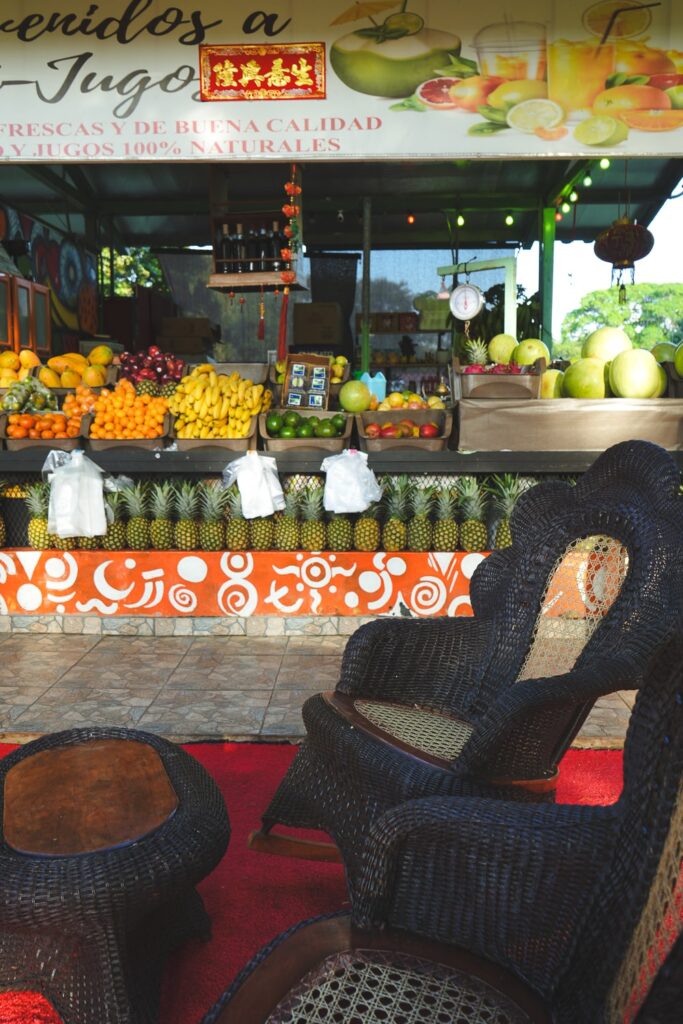
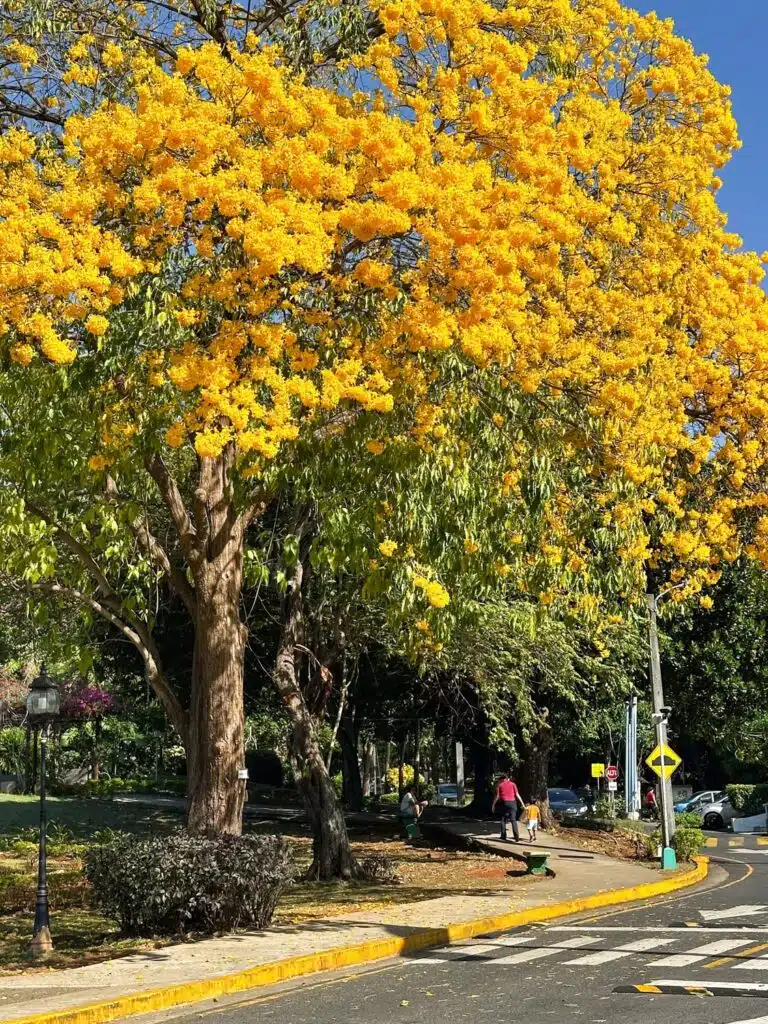
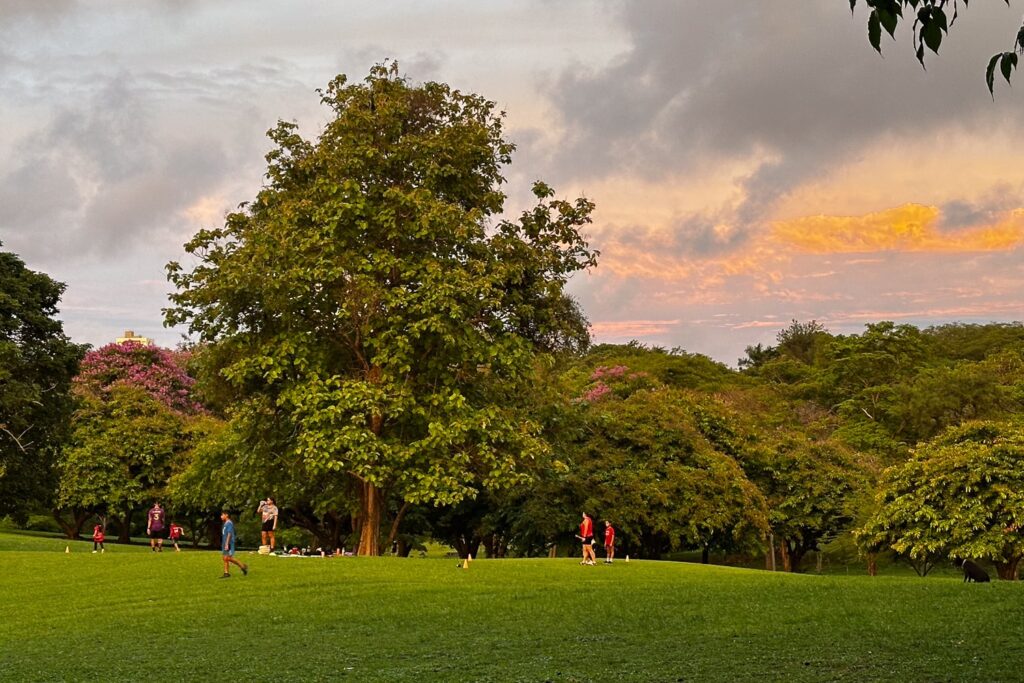
Taste Afro-Panamanian Flavors
In the San Francisco neighborhood, La Tapa del Coco celebrates Panama’s Afro-descendant heritage through elevated traditional cuisine, which has landed it on Latin America’s 50 Best Restaurants list.
Chefs Isaac Villaverde and Armando Bramwell designed a menu and space that is sophisticated yet comforting. It encourages you to eat curiously, and leaves both your soul and stomach satisfied at reasonable prices.
Order the jerk chicken or seafood coconut rice (One Pot Colonese) — dishes destined to rank among your best meals in Panama. For dessert, try the mammallena de pera (pear bread pudding) or the Panacake, a nostalgic nod to Panamanian childhood in a cup.
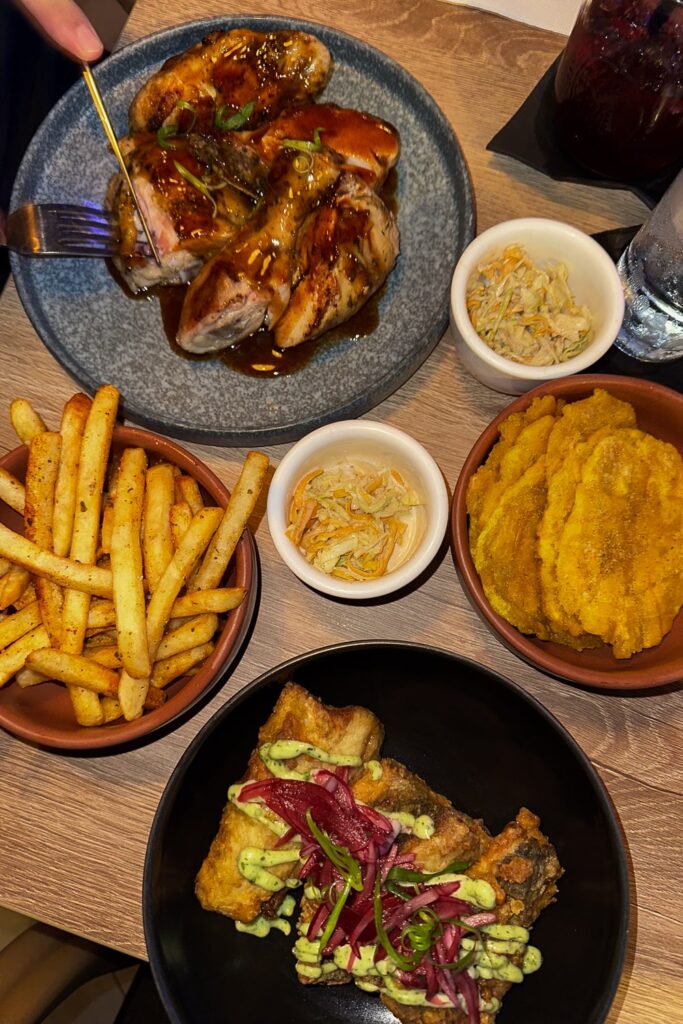
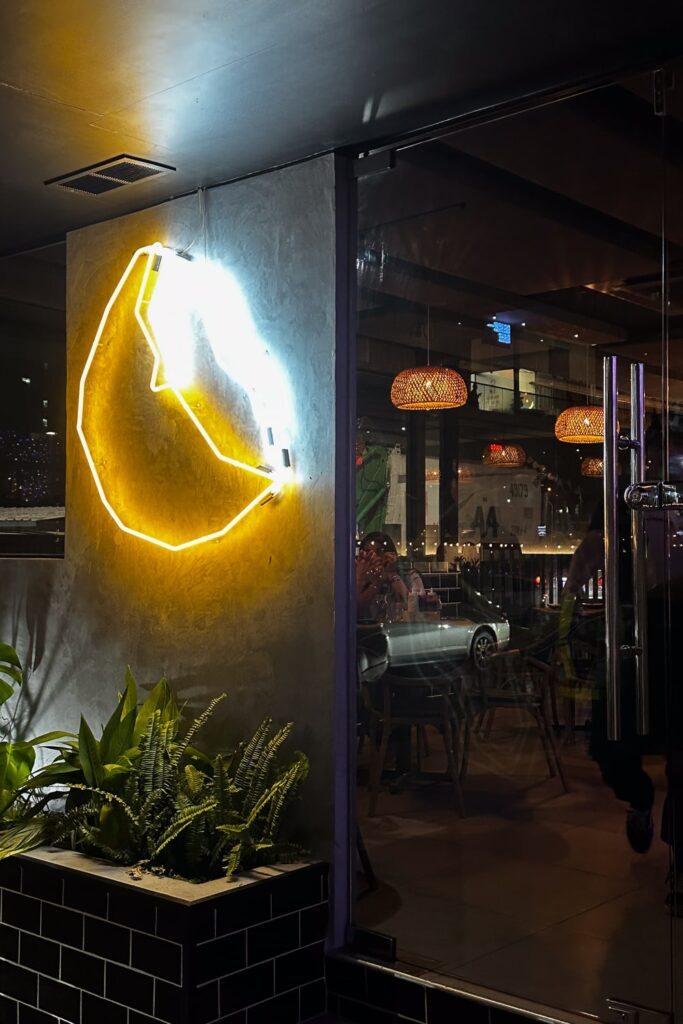
Have a Picnic at Felipe Motta Park
Felipe Motta Park in Costa del Este, named after a Panamanian businessman, has two lakes, walking trails, and sports courts. The main attraction is the resident family of ducks, completely unbothered by people. The second are the Flamboyan trees that burst into red blooms in late spring and summer.
It’s the perfect spot to connect with nature and take photos. Stop at La Casa de Jamón on the way to pick up Panama City’s most delicious Spanish bocadillos, a punnet of fruit, and have a picnic in the park.
Watch a Performance at Teatro Nacional
Dress to the nines and attend a performance, preferably one by the National Ballet of Panama, at Teatro Nacional in Casco Viejo. Originally built in 1907 and designed by an Italian architect, Genaro Ruggieri, the renovated theater boasts opulent decorations and breathtaking murals. Be sure to check what’s on the Panatickets website and use the Google Translate function as the webpage is in Spanish.
Visit the Best Rooftop Bar in Panama City
Mai Mai is a collaboration between two Latin American culinary powerhouses: Mitsuharu Tsumura of Lima’s Maido, Peru’s pioneering Nikkei restaurant, and Mario Castrellon of Maito Group. Together, they created a menu that fuses Japanese-Peruvian and Asian-Panamanian flavors, using ingredients rooted in both cultures.
Mai Mai is more izakaya than restaurant — a stylish bar where you order small plates to share alongside a cocktail menu crafted by Martin Hudak, one of the world’s top mixologists.
Located in Costa del Este, one of Panama City’s most upscale neighborhoods, Mai Mai also ranks among the best restaurants in Panama City with a view. Its outdoor terrace is pure magic at night.
Just keep in mind that traffic across town can be heavy during peak hours, so plan accordingly.
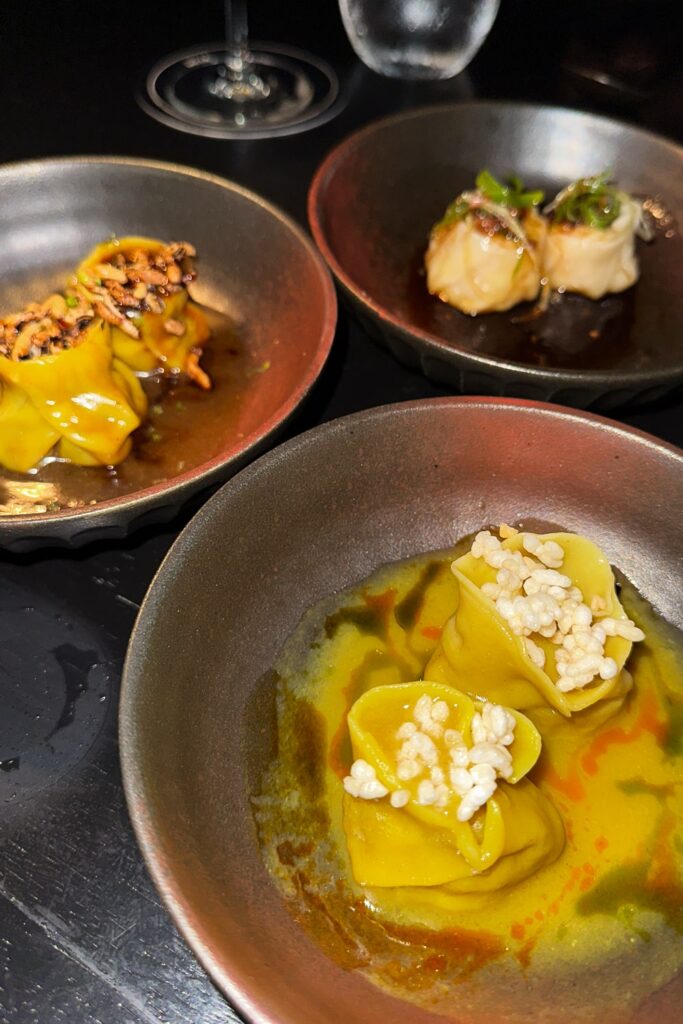
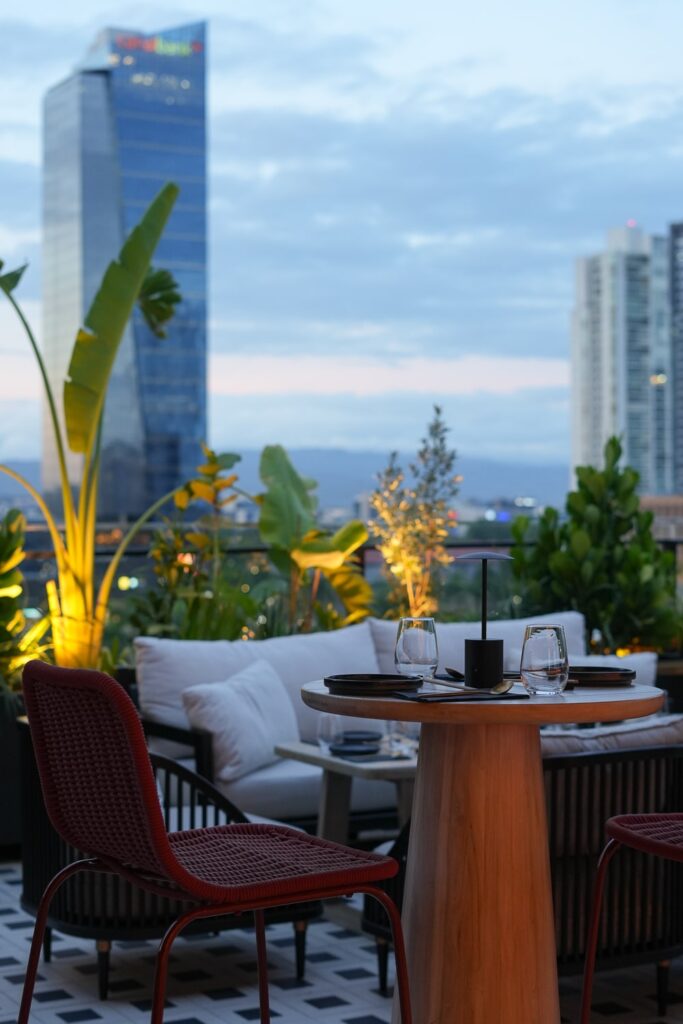
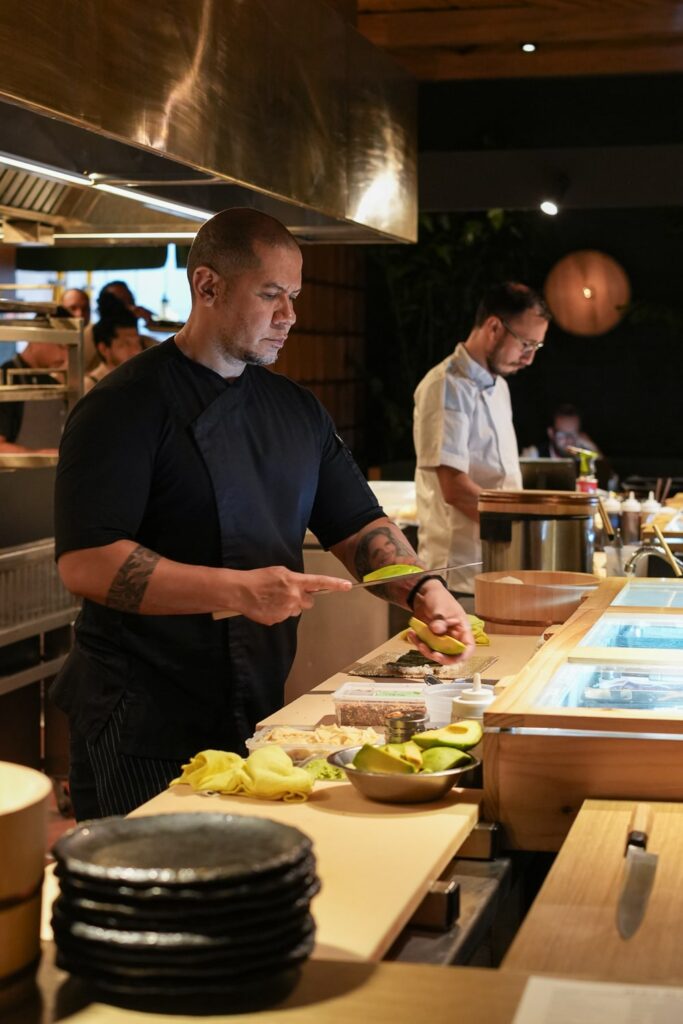
Join a Celebration
Panamanians love to celebrate! It’s no mistake that the tourism slogan is “Live for More”. The ability to throw a great party carries into spectacular cultural events.
If you are in Panama City during a festival or cultural event, try to attend! Here are some annual happenings to watch for:
- Fiestas Patrias (November)
- Jazz Fest (January)
- Carnavales (February)
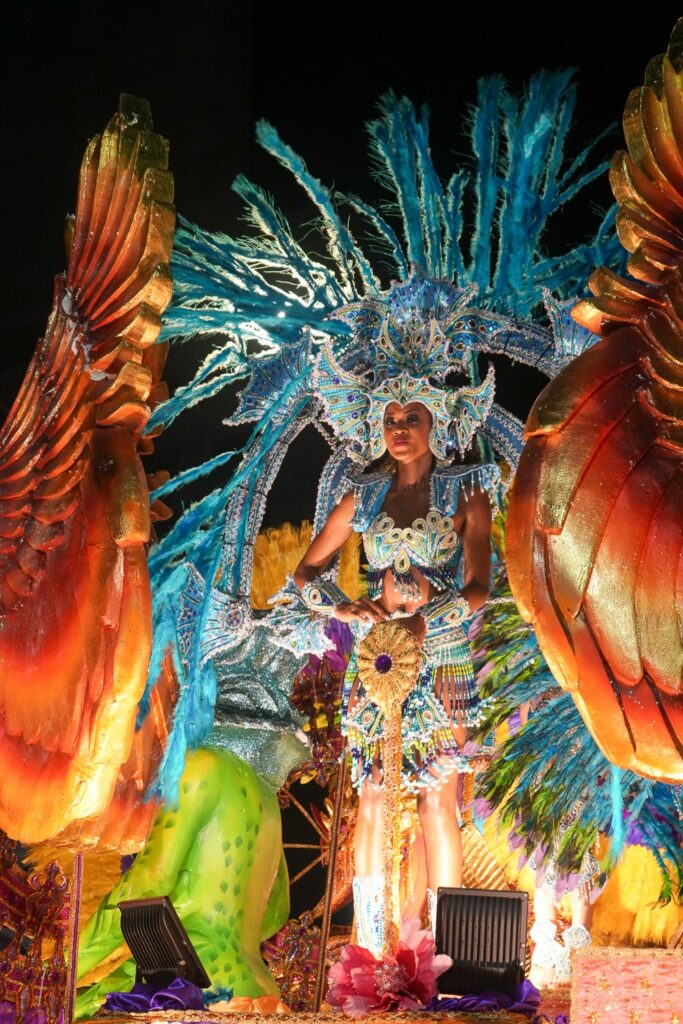
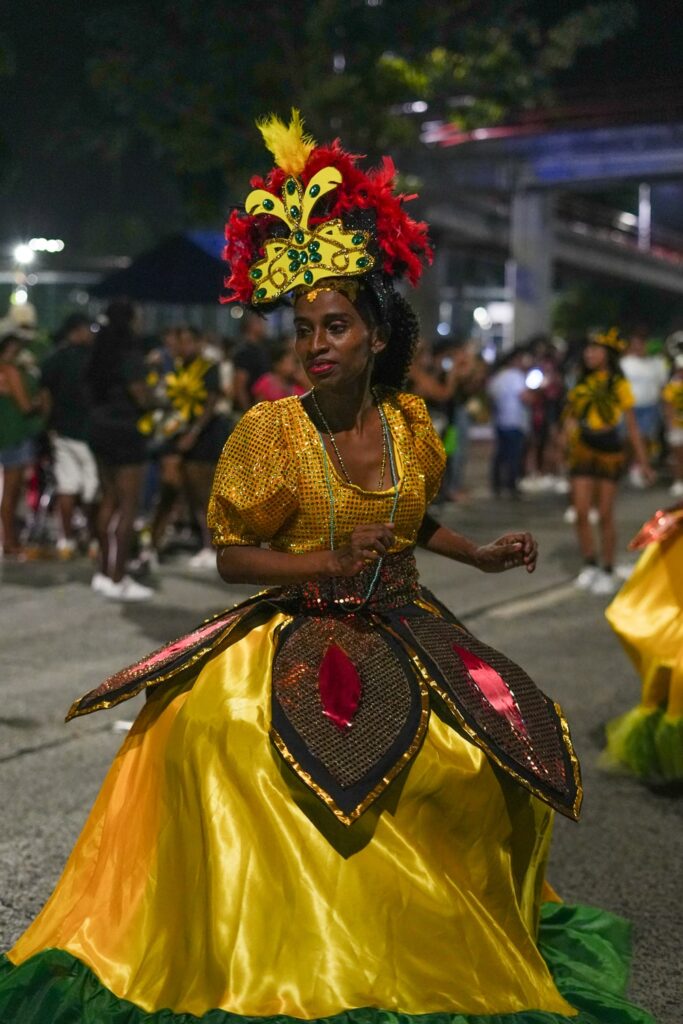
Final Thoughts on Things to Do in Panama City
With these 24 things to do within Panama City limits, you’re bound to have a meaningful and memorable time. If you’re planning day trips from the capital, check out my other Panama guides for more ideas.
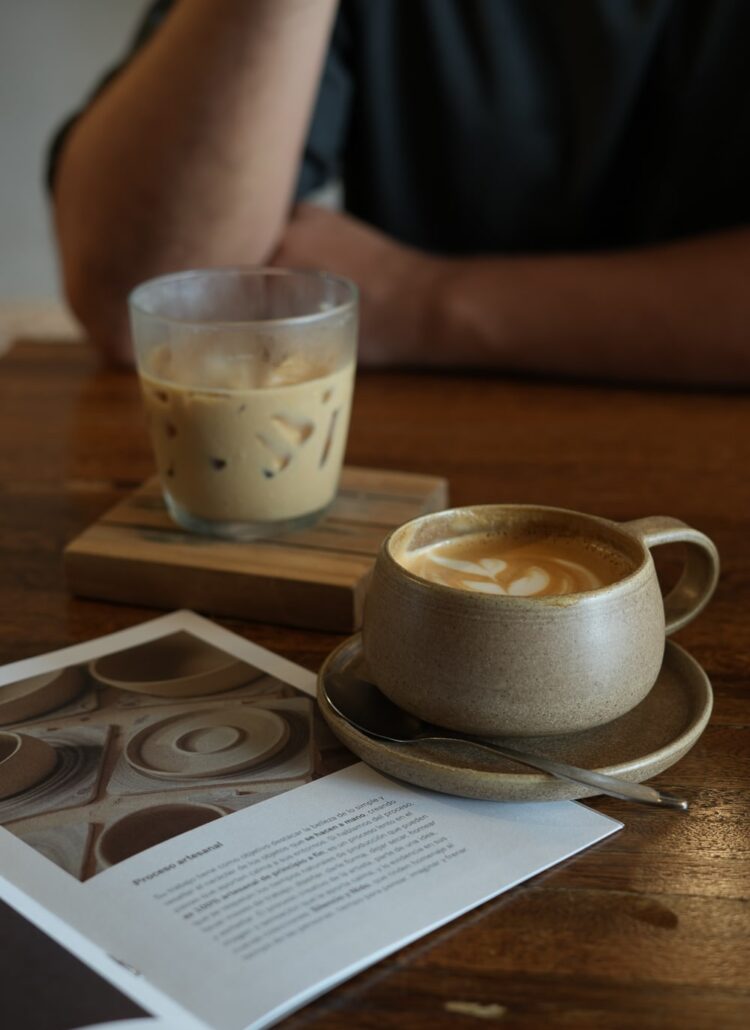
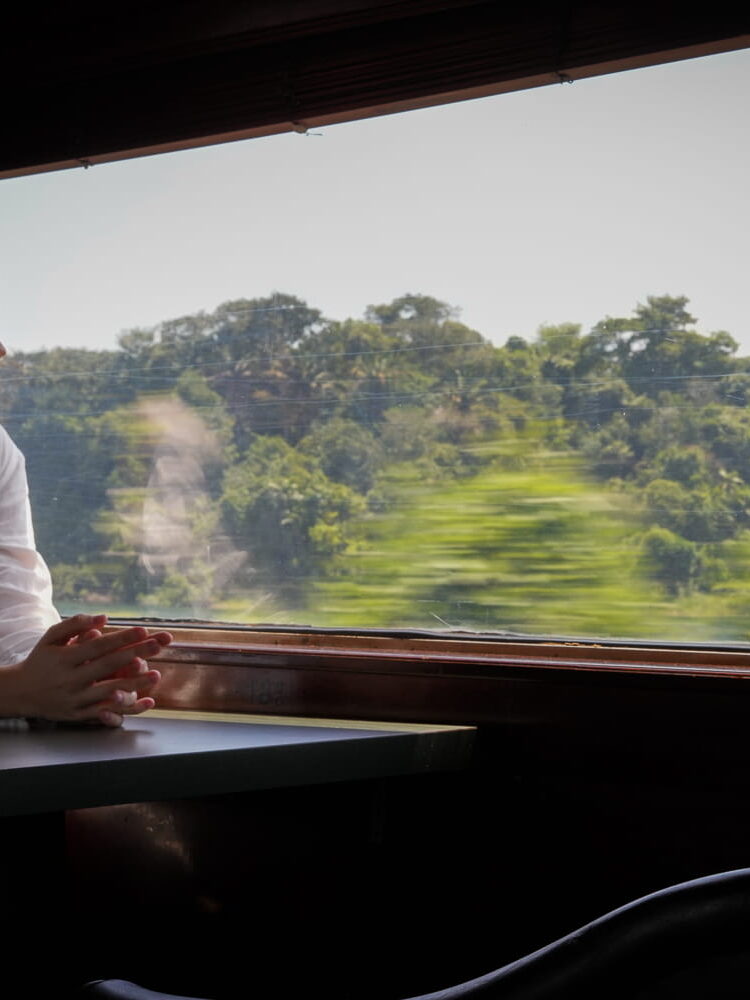
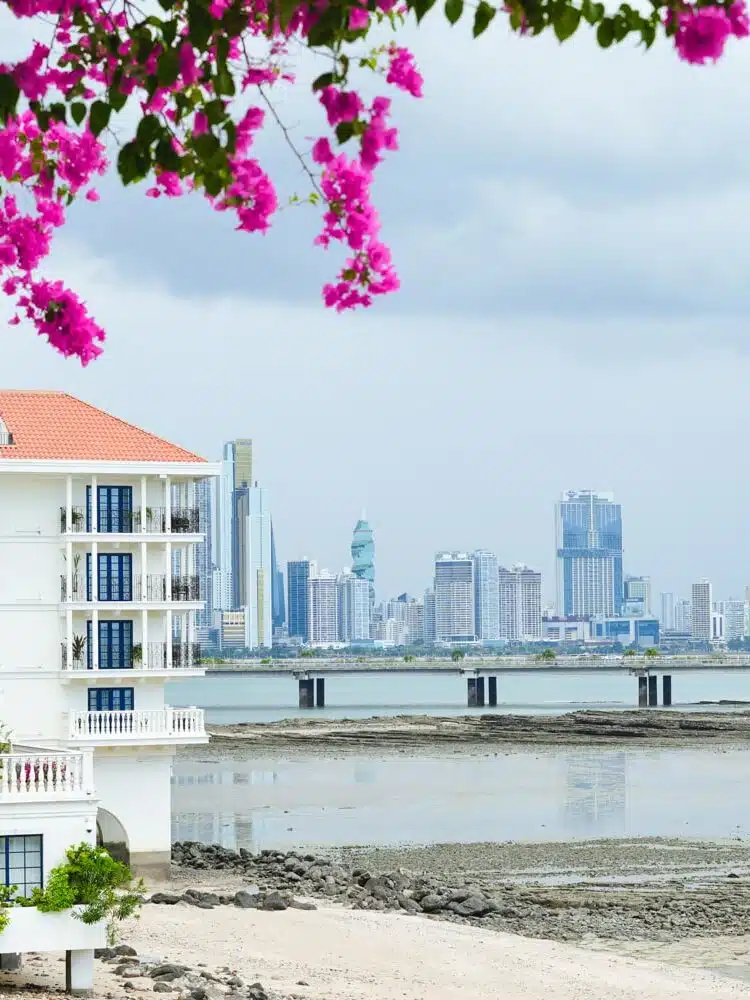
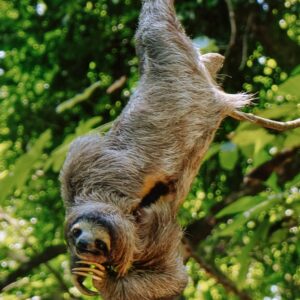
Wow I’m so impressed by how multicultural the city is. I had no idea about the large chinese population, but it makes me want to visit even more! Thank you for sharing this guide!
Thanks for reading Caleigh. That’s definitely one of my favorite things about Panama. I hope you get to visit!
Panama sure has a lot to do. When visiting a new destination, I always like to begin with a walking tour – so that would be number 1 on my list. Then sloth spotting would definitely be number 2. I’ve never seen one before and that would be so cool!
I hope you get to see one in the wild soon, they are so fun to observe.
I love local walking tours with guides who truly know the ins and outs of a city. Beautiful.
Right? The one in Santa Ana with Daniel ticked so many boxes for me: history, fun facts, photography.
This is a great post! I can see you put a lot of effort into it. I wish we had more “fonda” experiences in the U.S. When I was visiting Nicaragua, I couldn’t pass by a place like this without grabbing a small snack and it was always delicious.
I love that you have a hike with a view on the list too. Getting at least one hike in wherever I go is very important to me and the viewpoint at Metropolitan Park has an awesome view.
Lastly, I would absolutely want to get a massage at the Panana Casa Thai! I love a relaxing experience and this place looks wonderful. Thank you!
Hi Katelynn, thanks so much for reading and dropping a comment. Good food, good views and a massage is a winning combo, hey. Hope you get to satisfy your fonda cravings soon! In Panama maybe!
Panama City has been on my bucket list for a while, and this post makes me want to book a trip even more! I love how you included both popular attractions and unique local experiences — biking down the Amador Causeway and visiting the fish market sound especially fun. I didn’t realize there were so many cultural and foodie spots to explore right within the city. Great tips and photos — definitely saving this for future travel plans!
Love the diversity of recommendations, from old China town to the Cyclovia on Sundays. While we’ve visited neighboring countries, we haven’t yet visited Panama. Saving this for a future visit.